Agriculture & Environment
Mak-RIF, CAES Open Day: VC Reveals Plan to Establish a University-wide Research & Innovations Incubation Centre
Published
4 years agoon
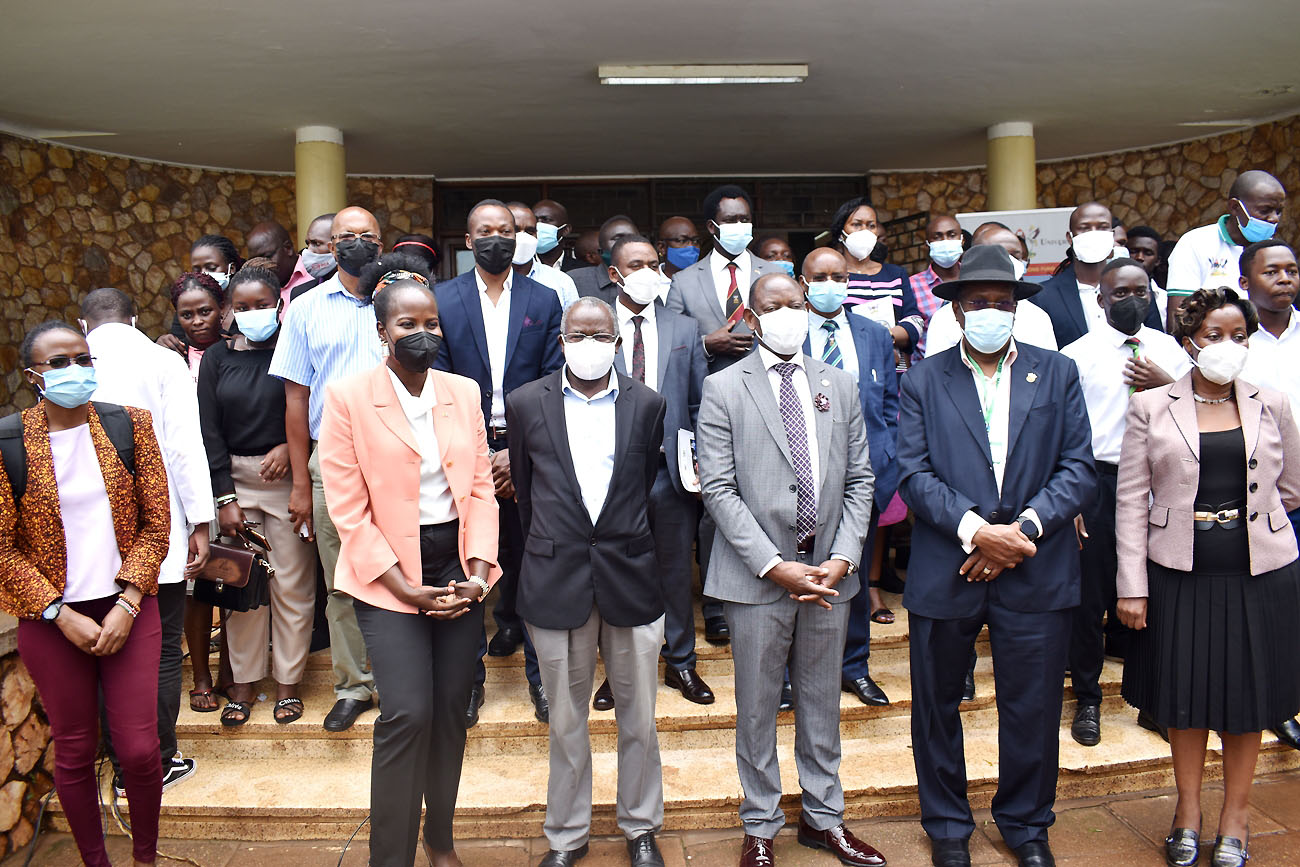
Plans are underway to establish a University-wide Research and Innovations Incubation Centre. This was revealed by the Vice Chancellor, Prof. Barnabas Nawangwe during the College of Agricultural and Environmental Sciences (CAES) Open Day held on 14th December 2021 to showcase outputs of some of the research projects supported by the Government of Uganda through the Makerere University Research and Innovations Fund (Mak-RIF). The event was presided over by the Permanent Secretary, Ministry of Agriculture, Animal Industry and Fisheries (MAAIF), Maj. Gen. David Kasura Kyomukama. It was attended by, among others, the representative of the Chair Grant Management Committee, Assoc. Prof. Isa Kabenge; stakeholders in the agricultural sector; the Principal, CAES, Prof. Bernard Bashaasha; the Deputy Principal, Dr.Gorettie Nsubuga Nabanoga; members of the Mak-RIF Secretariat led by Ms. Phoebe Kamya Lutaaya; and members of staff and students of Makerere University.
Touring the exhibition stalls, the Vice Chancellor said Management was fast-tracking the formation of a university-wide Research and Innovations Incubation Centre to support researchers to improve their prototypes. “The projects we have seen today are very impressive.It is gratifying to note that our researchers are actively working with communities to address various challenges. This is clear testimony that we are on the right track as a University. I take this opportunity to congratulate all researchers for the great innovations,” he said.
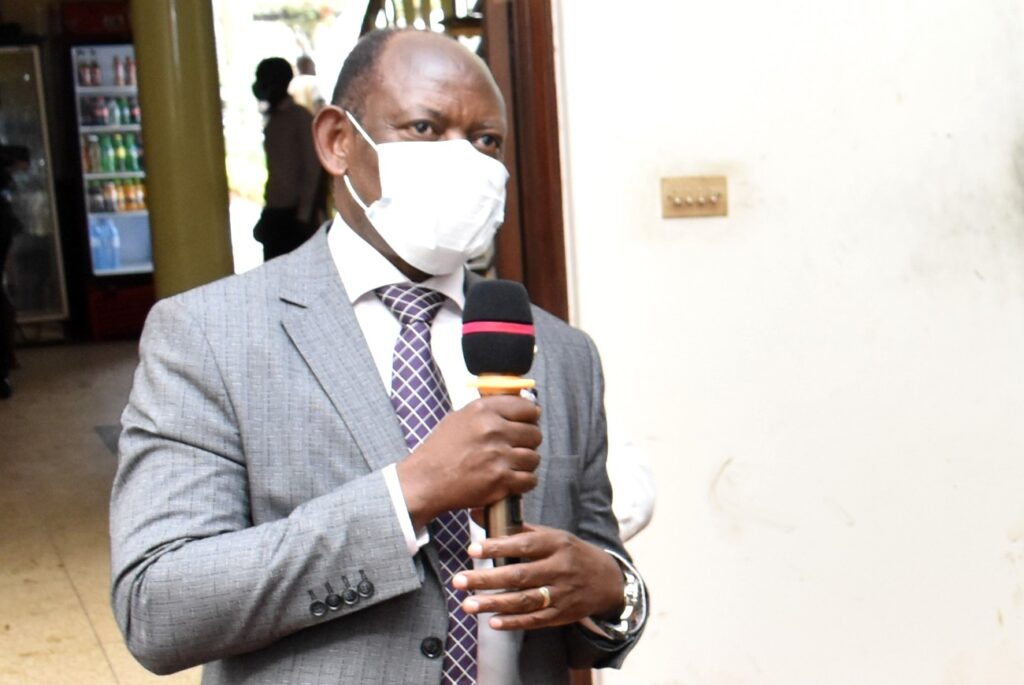
Emphasizing the critical role played by universities in the development of nation states, the Vice Chancellor said Makerere had reached a stage of churning out companies that can transform the country’s economy in the shortest time possible. “Through the Research and Innovations Incubation Centre, this can be achieved. It is our responsibility to ensure our country remains stable by creating employment for multitudes of young people, and enhancing food security. I therefore appeal to the government to support the establishment of the centre.”
The Vice Chancellor reminded the researchers of the need to patent their work. He also advised them to work towards commercialising their products. He expressed gratitude to the Government of Uganda for the continued support towards research and innovations at Makerere University. He also appreciated the University Grant Management Committee for negotiating the support and ensuring it is put to good use. The Vice Chancellor commended the Mak-RIF Secretariat for working tirelessly to ensure the research conducted does not remain on the shelves but is widely disseminated to foster uptake and economic transformation.
During the event, researchers from CAES showcased outputs of various projects including;
- Unlocking the commercial potential of Canariumschweinfurthi (Empafu) indigenous fruits for improved livelihood in Central Uganda – Prof. Jacob Agea. The main objective of the project was to develop high value commercial innovations from the fruit. Specific objectives were to formulate high value wine and jam innovations from the fruit pulp and to assess consumer market acceptability for developed wine and jam innovation.
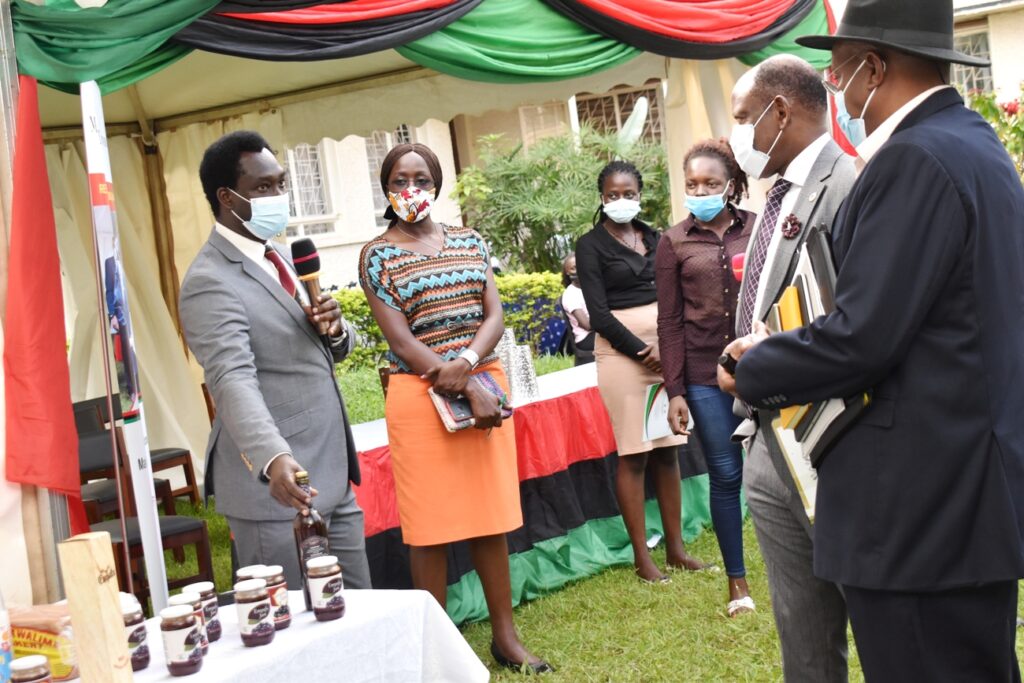
- Design, construction and evaluation of an automated continuous pasteurizer –Dr Emmanuel Baidhe, Dr Julia Kigozi. Along the juice processing chain, thermal processing by pasteurization is considered to be the most crucial of all unit operations as it increases the shelf life of the juice. Several batch pasteurizers have been locally developed and adopted. However, with the batch system, a particular volume of product is processed per unit time. It is therefore very cumbersome for a processor with large volumes since they have to keep emptying and refilling the vat. It requires a lot of resources in terms of labour (Amit et al., 2017), time and energy to have large quantities of juice processed. The purpose of the study was to design, simulate, construct and assess the performance of the low-viscous juice continuous pasteurizer.
- Enhancing Value addition on Potato-Sorghum enterprises for Improved Livelihoods in Uganda (EVaPoSIL) -Prof. Johnny Mugisha. Potato (Solanumtuberlosum) and sorghum (Sorghum bicolar) are potential pathways for enhancing household incomes, food and nutrition security in South-western Uganda which is characterized by land scarcity, decreasing agricultural productivity, high post-harvest losses and low per-capita income. Potato and sorghum are the region’s main enterprises but their economic and nutrition potential are not fully exploited. Sorghum productivity and profitability are very low and potato harvest losses in form of non-marketable tubers are high. The project sought to enhance the value of both crops by innovative value addition that makes them complements, reduce harvest losses, increase incomes, and make available to consumers a diversity of high quality products. The overall objective was to improve the economic value of potato and sorghum enterprises for improved livelihoods of the value chain actors.
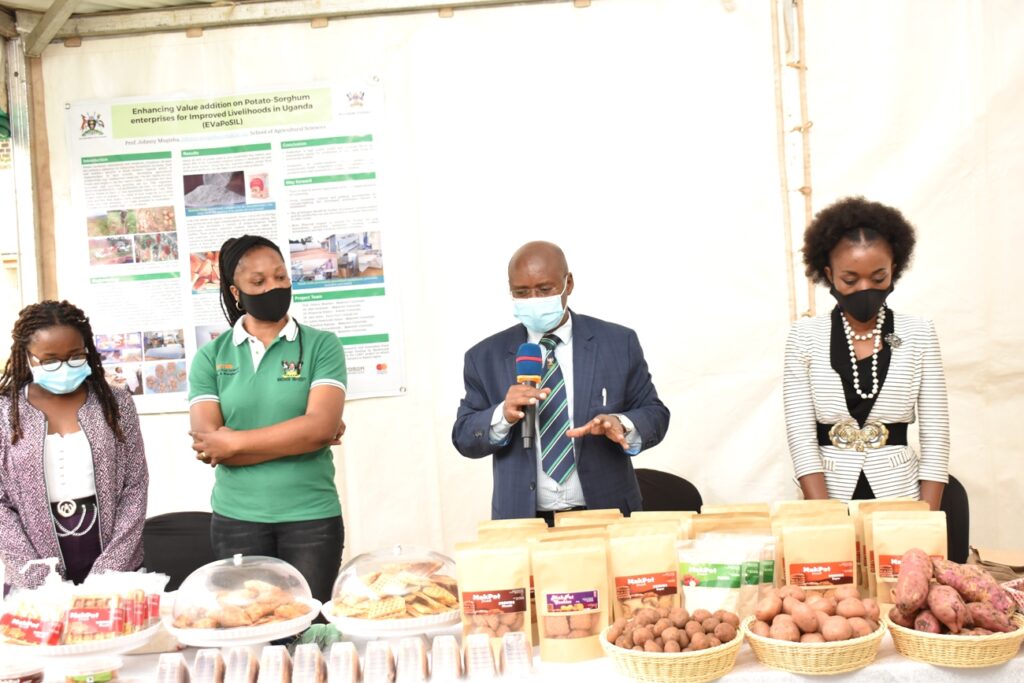
- Developing dry season feeding technologies for different cattle production systems in Uganda – Dr Justine Nambi-Kasozi. Scarcity, high cost and fluctuating quality of feeds are major constraints to sustainable cattle production in Uganda, particularly during the dry seasons. Use of crop residues plays an important role in reducing feed stress. However, most crop residues are bulky and low in nutrient content hence unable to support maintenance and production requirements of cattle. The objective of this project was to develop crop residue-based multi-nutrient blocks (MNB) and pellets to increase the intake and utilization of crop residues for dry season feeding.
- Digitalizing the Makerere University Soil Test Kit for rapid soil assessment, improved soil management, crop yields and incomes among farmers in Uganda – Emmanuel Opolot. Accurate assessment of soil is key for its sustainable use and management. The Makerere University Soil Test Kit (MAK-STK) comes in handy. It gives results of five soil parameters (pH, N, P, K and SOM) within minutes. However, the results from the MAK-STK are qualitative and thus hard for agricultural extension workers to advise farmers on how much nutrients to add to the soil. The project objectives were to (i) calibrate the MAK-STK with laboratory data for major soil types in Uganda, (ii) develop a digital platform through which the MAK-STK results can be quickly and easily translated to fertilizer recommendations and (iii) build capacity of the agricultural extension officers, farmers and fertilizer input dealers on the use of the Makerere University Soil Test Kit and its digital platform.
- Development of a Safe and Efficacious Anti-malarial drug from Traditional medicine -Prof. John Tabuti. Malaria is still a leading source of illness and death. In 2017, about 219 million suffered from malaria worldwide, with 92% of cases occurring in Africa. Malaria management is complicated by the fact that access is still limited in some places, and there is a possibility of treatment resistance.The goal of this research was to contribute to the development of a safe and efficacious anti-malarial. The specific objectives were: to compile a list of malaria treatment plants in Tororo District and prioritize them to determine the safety of the malaria treating plants.
- Deployment of the new Maksoy soybean varieties for on-farm income enhancement, Food and Nutrition security, Enterprise Development and Job creation in Eastern Uganda – Prof. Phinehas Tukamuhabwa. Over the last 10 years, Makerere University developed six improved soybean varieties namely MAKSOY 1N, 2N, 3N, 4N, 5N and 6N. Unfortunately, the potential of the new MAKSOY soybean varieties had not been fully exploited due to limited farmer access to seed in addition to low skill set in soybean agronomic practices that subsequently leads to low yields. Further, each of the soybean varieties has specific attributes for protein, oil, maturity and yield in the field and efforts had been made to enhance their adoption in different parts of Uganda. However, the role of soybean in contributing to food and nutrition security of different households and communities in the country remains a critical challenge. This project focused on harnessing the value of the different soybean varieties through value addition using soymilk and soy flour for adoption by households, SMEs and also to set up a Soy Processing Unit at MUARIK.
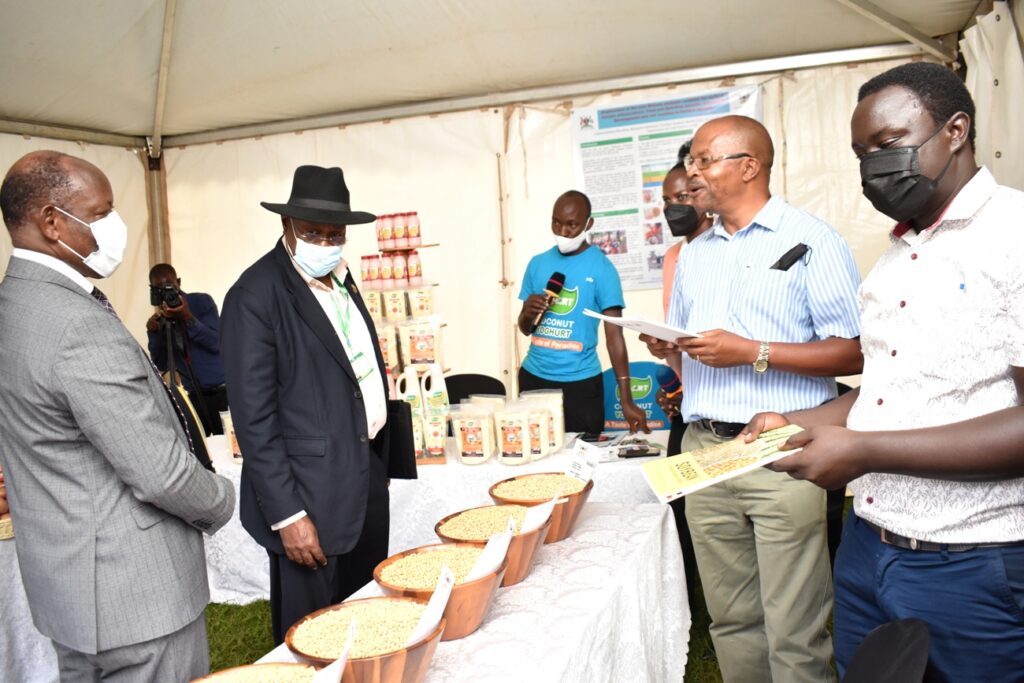
- Improving access to biodiversity data for conservation decision making: A case of the National Biodiversity Data Bank, Makerere University, Uganda – Daniel Waiswa. This project sought to revitalize the NBDB as a one-stop biodiversity data centre enabling easy and fast access for sound biodiversity conservation decision making. The overall objective was to improve access to biodiversity data for conservation decision making while the specific objectives were to: increase stakeholders’ engagement and confidence in the NBDB for enhanced biodiversity data sharing and access, re-designing and operationalizing the NBDB Database for reception, storage and open access to data and enhancing and sustaining the staffing, capacity and infrastructure of the NBDB.
- A Pedal-Operated Seed Cleaner (PoS-Cleaner) To Boost Post Harvest Grain & Legume Quality, Increase School-Study time & Create Financial Freedom in Rural-Uganda – Peter Tumutegyereize. Sub-Saharan Africa (SSA) annually registers 40-50% of food Post-Harvest Losses (PHLs) worth US$4 billion with 41% and 26% respectively grains & legume losses in Uganda. Maize grains lost alone, could feed over 1.14 million persons for a full year. These losses along the food chain are greatly attributed to poor seed sorting or cleaning. Unclean seeds and foreign materials promote mold development resulting to dry matter loss, nutritional changes, seed quality loss, aflatoxin contamination and PHLs during storage and processing. Despite this, majority of small-scale farmers have no access to appropriate seed cleaning technologies. The available imported seed cleaners in Uganda are energy and cost demanding in terms of ownership, operation and maintenance. Farmers depend on traditional screening or winnowing which is inefficient, time consuming, labour intensive and dust exposure resulting into ill health. For rural schools that depend on in-kind food tuition contributions from parents, students traditionally clean seeds hence reducing their study time and educational performance. The study sought to create intermediate but appropriate post-harvest cleaning technologies.
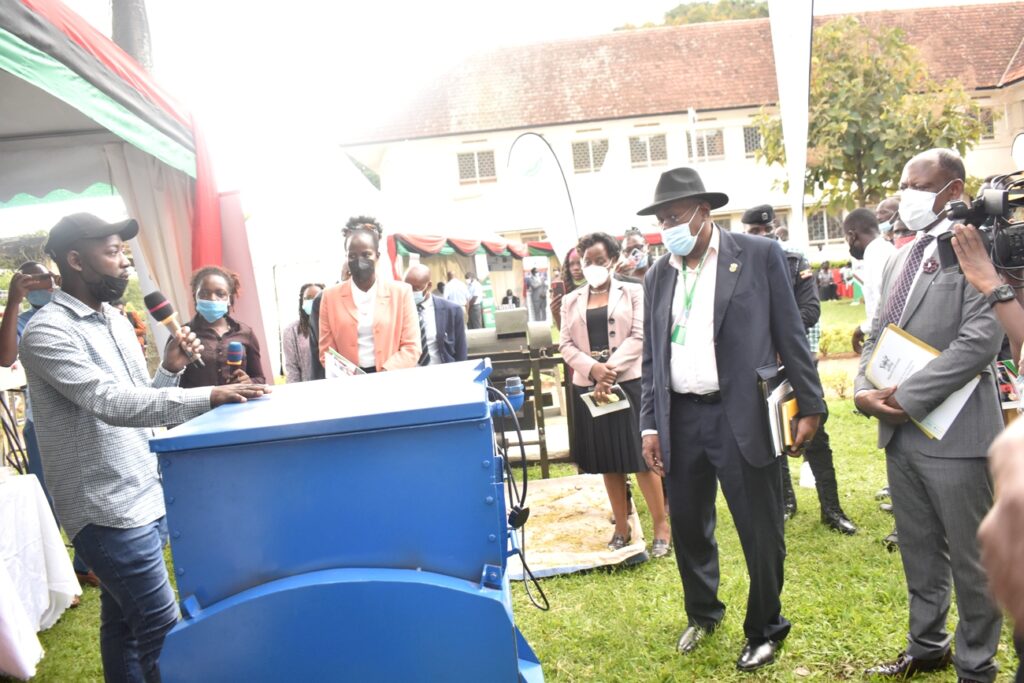
- Developing an automatically controlled commercial solar-dryer and efficient resource recovery innovations for sustained market responsive fruit production in Uganda -Ahamada Zziwa. Food insecurity and poor livelihoods continue to prevail in Uganda partly due to high post-harvest losses, limited value addition options and low farm-gate prices particularly for perishable foods (FAO, WFP and IFAD, 2019). The lack of affordable preservation options contributes to over 30% post-harvest losses because majority of farmers have no access to electricity for processing and preserving perishable foods. Harnessing solar energy and its use for food preservation is a viable option for most off-grid farmers. However, the existing solar dryer designs are limited in drying efficiency due to absence of temperature and relative humidity controls which undermines their ability to ensure consistent physical and nutritional quality of dried products. Most dryers are also small drying capacity designs based on only solar light as the drying power which renders them unsuitable for large scale drying and uneconomical (Shaikh and Kolekar, 2015). The project aimed to: 1)design, construct, test and promote a sensor-controlled dual heat source (Hybrid) solar dryer to ensure consistent drying of reasonably large volumes of perishable produce; 2) investigate vermicompost recovery from pineapple waste and cow dung; and 3) optimise biogas production from pineapple waste.
- Development of Nutrient-Dense Recipes and Products from Underutilized Crops to Alleviate Malnutrition among HIV/AIDS Infected Persons in Western Uganda – Agnes Nabubuya. Human Immunodeficiency Virus (HIV) is a global pandemic that is currently affecting 3.7 million people worldwide of which 70% is found in Sub-Saharan Africa. Uganda continues to suffer from scourge of HIV with current prevalence at 7%. Healthcare of people living with HIV/AIDS (PLWHA) in Uganda is constrained by poor nutrition, with estimates of 25% suffering from malnutrition. This project addressed the challenge of malnutrition in PLWHA by using underutilized crops through development of nutrient-dense recipes and products. The research team analysed the nutritional composition of identified underutilized crops and developed nutrient-dense recipes and products for PLWHA.
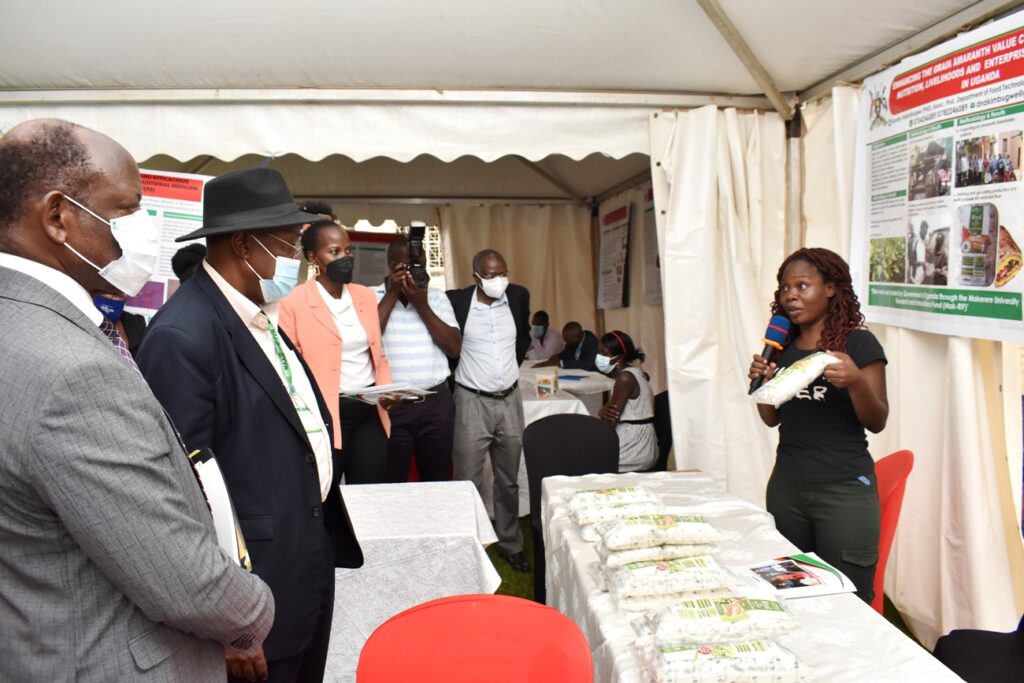
- Strengthening the resilience and visibility of peri-urban poultry farmers in Wakiso for better marketing and profitability through feeding, post-harvest handling, value addition and resources recovery – Ahamada Zziwa. Globally, COVID-19 has had adverse impacts on the poultry value chain through infecting workers, farmers, stalling production, disrupting the supply chain, and thus affecting product demand. The lockdown led to socioeconomic restrictions and distortions in community dynamics, marketing and sale of products leading to huge losses in the poultry sector (FAO, 2020; Poudel et al., 2020). Transport restrictions to poultry farmers and closure of national borders, weekly markets, institutions, schools, hotels and restaurants, which were the main markets, left farmers with large quantities of unsold poultry products, resulting in financial losses especially to farmers without value-addition options and resources recovery innovations. The overall objective of the project was to strengthen the resilience and visibility of peri-urban poultry farmers for sustained poultry production, better marketing and enhanced profitability through innovative feeding, post-harvest handling, value addition and resources recovery.
- Optimized software for planning and simulation of food aid response during the COVID-19 pandemic and other similar disasters in Uganda – Fildah Ayaa. Covid-19 was declared a pandemic on 11th March 2020. First lockdown measures to contain the spread of the virus effected on 31st March 2020. Covid-19 lockdown disrupted food supply systems, causing food insecurity, especially in urban areas.Uganda’s government food distribution efforts were frustrated by poor planning for both food stock and manpower. Only 12 % of the total population received food aid during lockdown period. Of these, 24% were urban residents and only 7% lived in rural areas (Acayo,2020). The research team designed software for authorities to plan for food distribution during and after the Covid-19 pandemic in Uganda.
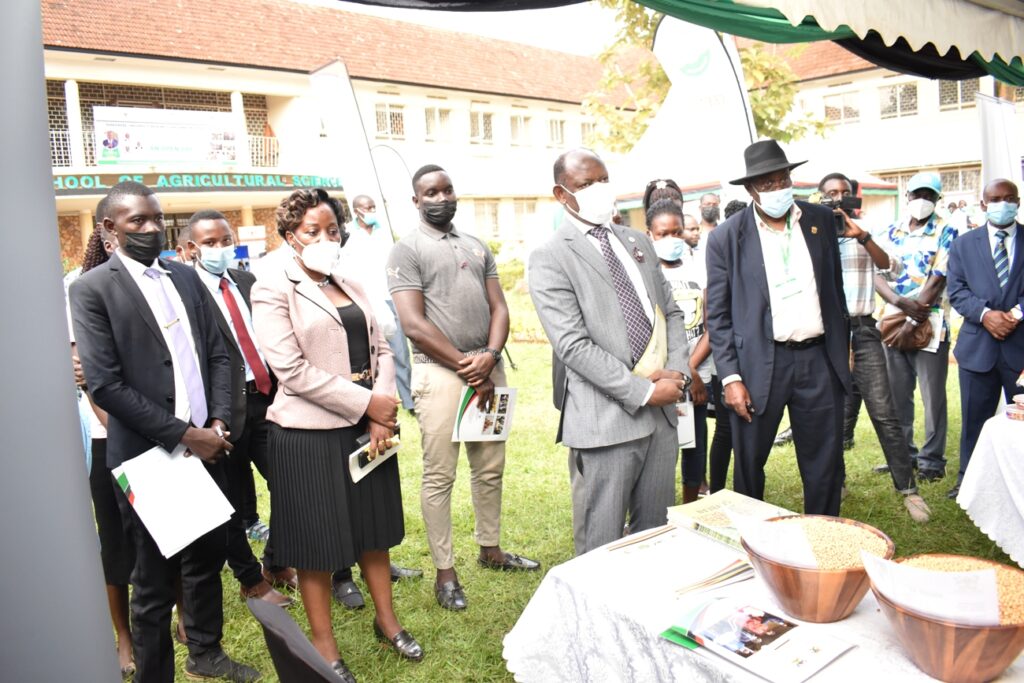
- Development of a Green Low Cost Touchless Handwash Technology (TW-20 Kit) For Public Shared Spaces – Joshua Wanyama. Effective hand washing with soap for at least 20 seconds and limiting contacts are useful COVID19 preventive measures. However; the existing point-of-hand washing systems are ineffective in achieving the set measures as most of them require individuals to touch the units, have no mechanism in place to ensure hand washing with soap for the recommended time and are therefore prospective contagion points for the pandemic (WHO 2020). There was therefore, a need to develop a low-cost hand washing technology that automatically releases soap detergent without contact and allows users to rub and scrub the hands with soap for 20 seconds before water is released for rinsing. The project aimed to provide a safe water and hygienic technology to boost behavioural hand washing culture and reduce the risk of SARS-COV-2 human to human transmission in public shared spaces. The specific objectives were: i) to re-evaluate and modify the first prototype of TW-20 Kit V1.1 design customized for public settings, ii) to influence public behavioural change towards hand hygiene and product validation by undertaking a comprehensive pilot study in selected shared public spaces in Kampala Metropolitan Area.
- Design and development of an atomized spray drier for egg powder production for use in bakery industries of Uganda – Kivumbi Hussein Balimunsi. Due to the introduction of fast growing breeds of chicken in Uganda, there has been enormous production of high quality eggs, making the country one of the largest egg producers in the region. However, due to the outbreak of COVID19 and the subsequent lockdowns, the prices of eggs drastically reduced to nearly 5000 UGX per tray consequently affecting chicken farmers. This was further worsened by the lack of value addition to the available eggs leading to huge losses. This project sought to explore the utilization of spray drying in the production of high-value products from eggs in Uganda as a measure to minimize losses.
- Automation of communal hand water pumps to eliminate COVID-19 transmission – Nicholas Kiggundu.The research was motivated by the observation that alternative solutions of limiting the spread of COVID-19 such as washing hands with water and soap or use of chemical sanitizers are difficult to enforce especially in the low income rural and peri-urban communities where the boreholes are found. The researchers invented MAKNAI an acronym for the Makerere University – MAK NAyIkondo – vernacular for borehole, a prototype to automate cranking of the hand pump that draws water from a well. Designed by a team from the Department of Agricultural and Biosystems Engineering (DABE), School of Food Technology, Nutrition and Bioengineering (SFTNB), College of Agricultural and Environmental Sciences (CAES) the prototype consists of a PV (photovoltaic) panel, battery, solar charge controller, inverter, motor, pulleys, belt, reciprocating arm and a foot switch. The foot switch serves to replace the use of palms and fingers to crank the pump handle, as is the practice while drawing water at boreholes.
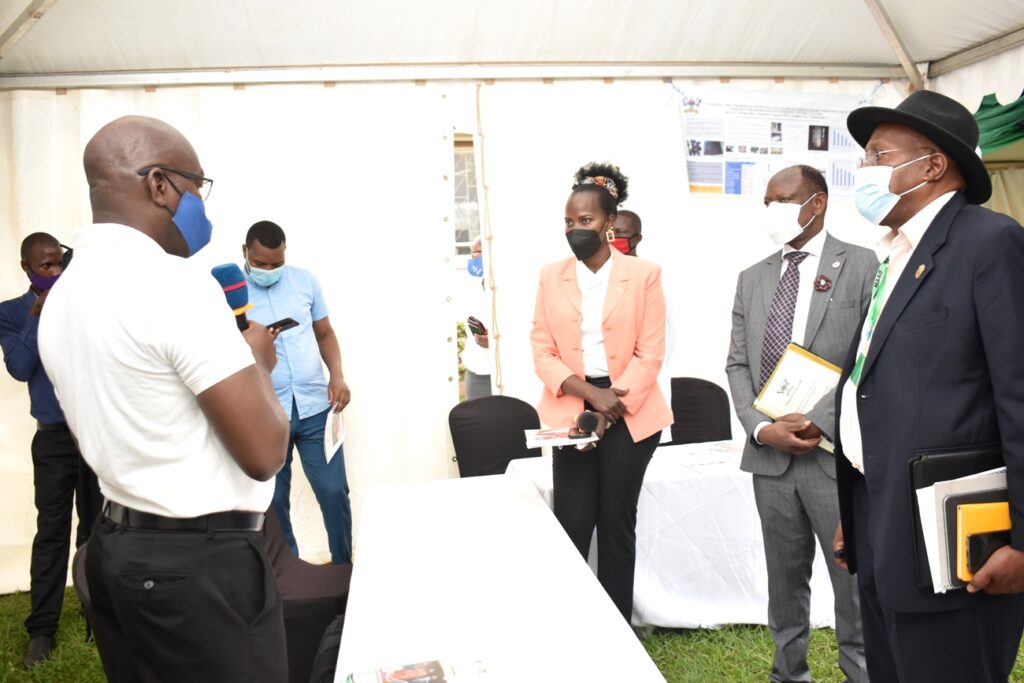
- Empowerment of the Agro-Processing Industry to meet the Quantity and Quality Standards for the Local and Export Market; a Programme Enhancing the Practical Skills of Students in Makerere University – Julia Kigozi.
- Mountain Gorilla Tourism Re-examined: Implications of increased visitor numbers to the welfare and behaviour of mountain gorillas in Bwindi Impenetrable National Park, Uganda – Prof. David Mwesigye Tumusiime.
- Developing Biofertiliser Formulations to Unlock Crop Productivity for Improved Food Security and Household Livelihood in Uganda – John Baptist Tumuhairwe
Remarks by the Permanent Secretary, MAAIF (Guest of Honour)
Addressing participants, the Permanent Secretary, Ministry of Agriculture, Animal Industry and Fisheries, Maj. Gen. David KasuraKyomukama commended the innovations at CAES and Makerere University in general. He applauded Makerere University Management and Council for creating an enabling environment for research and innovations. Maj. General Kasura appreciated the Government of Uganda for the enormous investment in research at Makerere and other Institutions of Higher Learning.“With guidance from the President of the Republic of Uganda, H.E Yoweri Kaguta Tibuhaburwa Museveni, the Government has invested heavily in research, one of the major drivers of economic development. The Government has supported the formation of various initiatives aimed at advancing research in the country. In particular, the Government has supported the creation of several research initiatives at Makerere University. This is highly commendable and a great stride towards transforming our economy,” he noted. He appealed to the researchers to invent more technologies to aid the production of quality agricultural products in the country. “We should always ensure our agricultural products are 100% free of aflatoxinto avoid reputational damage,” he advised. Maj. Gen. Kasura pledged support towards the commercialization of the research outputs. He urged the researchers to extensively disseminate their work, saying that knowledge that is not shared is useless.
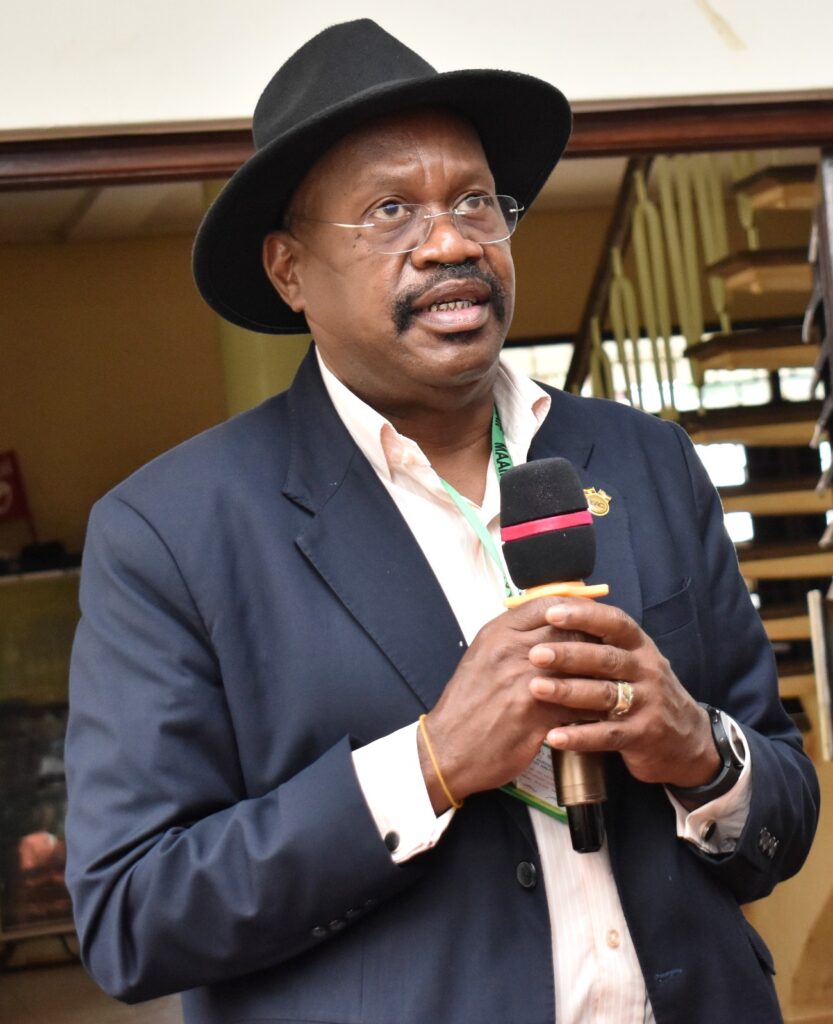
The representative of the Chair, Makerere University Grant Management Committee, Prof. Isa Kabenge expressed gratitude for the support rendered by the Government, noting that the impact of the research projects is invaluable. Since Financial Year 2019/20, the Government through Mak-RIF has supported 711 multidisciplinary research and innovation projects across the 10 colleges of Makerere University. The College of Agricultural and Environmental Sciences (CAES) has obtained 79 projects across the three financial years.
In his remarks, the Principal, CAES, Prof. Bernard Bashaasha applauded the researchers for the great initiatives. He extended appreciation to Makerere University Management, the Government of Uganda, and development partners for supporting the researchers to explore their full potential. “The research generated at the College is highly commendable and has played a critical role in shaping the national and global policies,” he said.
Similarly, the Deputy Principal appreciated the researchers, CAES Management, the University Management, Government and development partners for the support that has enabled the college to generate productive research.
About Mak-RIF
The Makerere University Research and Innovations Fund (Mak-RIF) is a funding stream to support generation and translation of high impact research and innovations to drive Uganda’s development Agenda. This initiative is funded by the Government of the Republic of Uganda.
Objectives of the Fund
- Developing and funding a robust research agenda based on National development priorities identified from academia, government, implementing partners, and industries.
- Supporting the dissemination of high-quality research and innovations in a way that impacts development policies and programs.
- Supporting the growth of research leadership capacity in the university.
You may like
-


Simplicity, Service & Scholarship: Hallmarks of Professor Livingstone Luboobi’s Legacy
-


Strengthening Grants Management Through Institutional Collaboration and Capacity Building
-
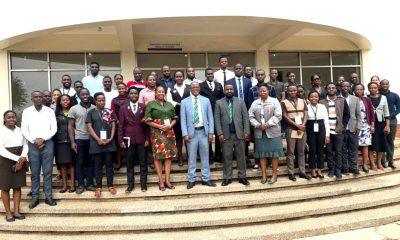

Mak Moves to Revitalize Food Technology & Business Incubation Centre to Drive Innovation & Entrepreneurship
-
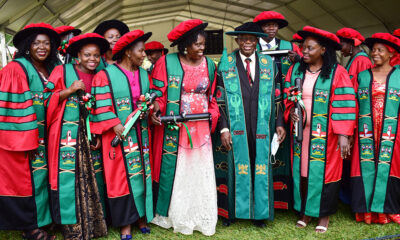

Advert: Postgraduate Admissions 2025/26
-
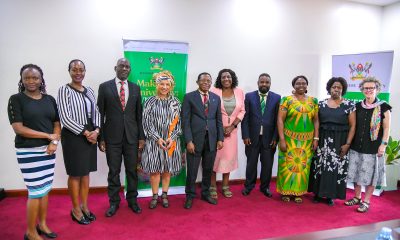

Mak, HERS-EA Discuss Nurturing More Women Leaders
-
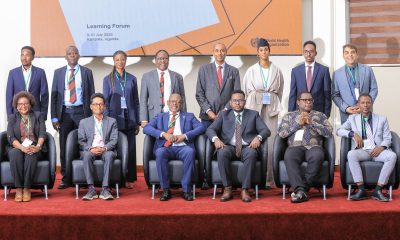

Opening KNOSA Learning Forum at Mak
Agriculture & Environment
Mak Moves to Revitalize Food Technology & Business Incubation Centre to Drive Innovation & Entrepreneurship
Published
5 days agoon
July 14, 2025By
Mak Editor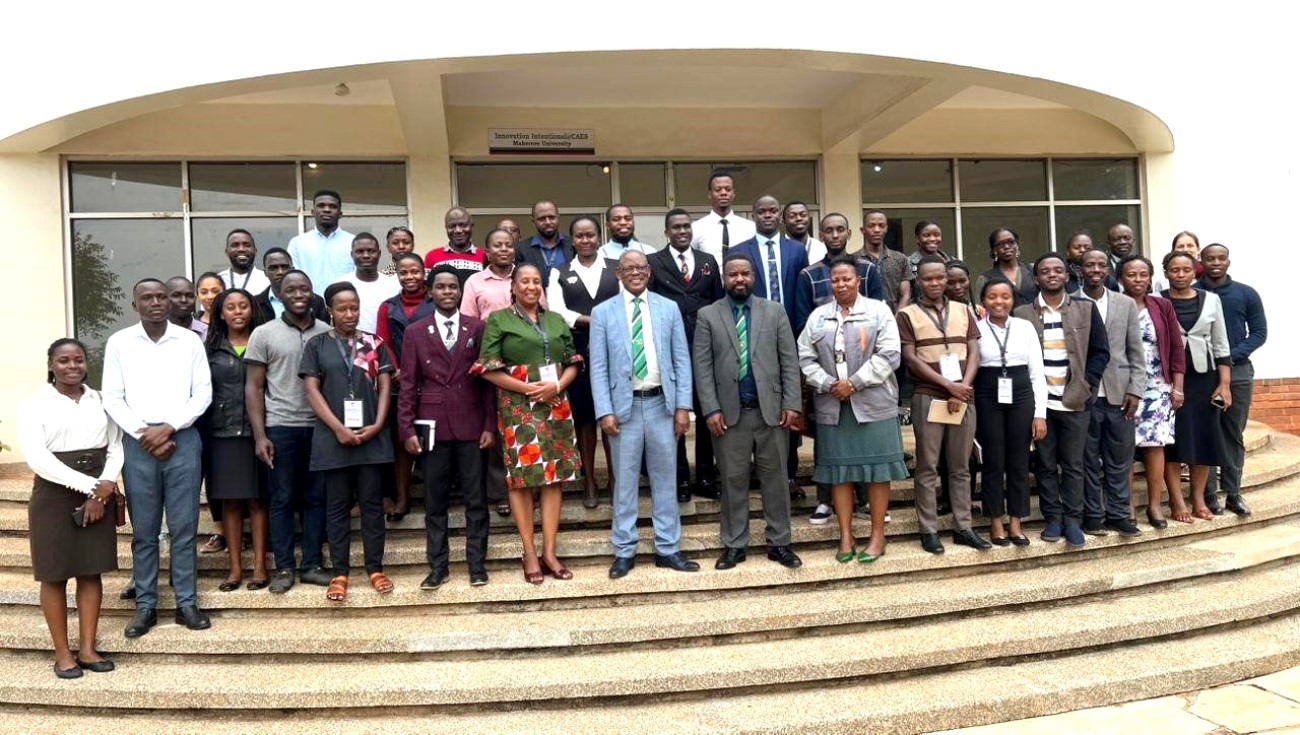
By Ssembogga Derrick
Makerere University marked a significant milestone on Thursday, 10th July 2025, with the launch of the revitalization programme for the Food Technology and Business Incubation Centre (FTBIC). This initiative is poised to position the FTBIC as a national hub for food innovation, student enterprise development, and agro-industrial transformation.
Hosted under the School of Food Technology, Nutrition and Bioengineering (SFTNB) at the College of the Agricultural and Environmental Sciences (CAES), the revitalization of the FTBIC is intended to bridge the gap between academia and industry. “We aim to achieve this by supporting food-based start-ups, enhancing graduate entrepreneurship, and promoting the commercialization of research,” Dr Julia Kigozi, Dean, SFTNB explained. The project receives critical funding from the Makerere University Research and Innovations Fund (MakRIF), which consistently supports innovation and research-based development at the university.
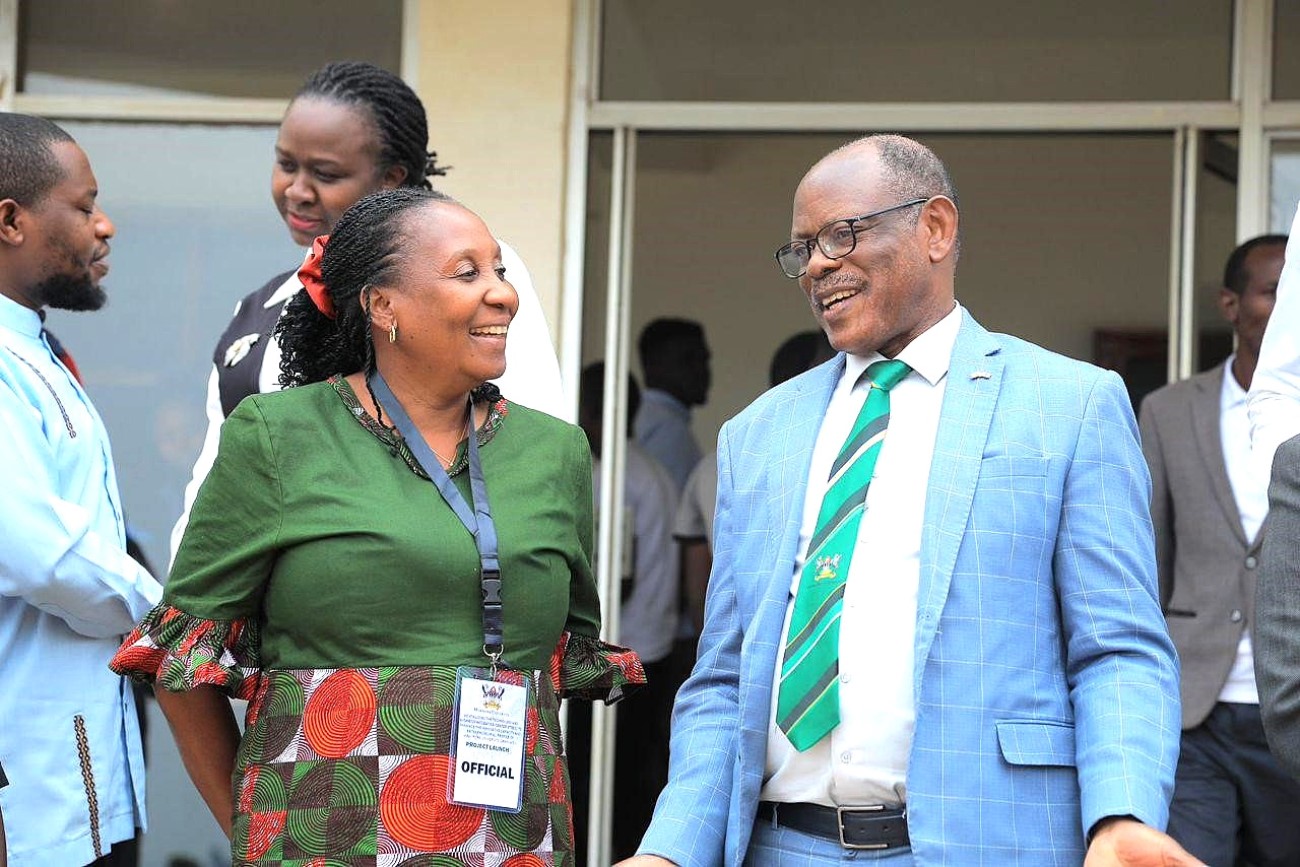
Unveiling a New Strategic Vision
The event, held under the theme “Revitalizing FTBIC to Unlock Innovation and Entrepreneurship Potential among Makerere University Graduates”, marked the official launch of the Centre’s revitalization programme to key stakeholders. It featured the presentation of FTBIC’s new strategic vision and direction, highlighting the commitment of the institution and its partners to fostering graduate entrepreneurship and innovation in food systems. The event also aimed to raise awareness of the Centre’s crucial role in supporting industry, research, and national development.
Participation of stakeholders
The launch attracted a vibrant and diverse audience of over 50 participants. Among the attendees were student representatives; partners from other incubation centers both within and outside Makerere University, including MIIC, UNIPOD, and DGI; as well as representatives from national innovation stakeholders such as Uganda Industrial Research Institute (UIRI) and StartHub Africa.
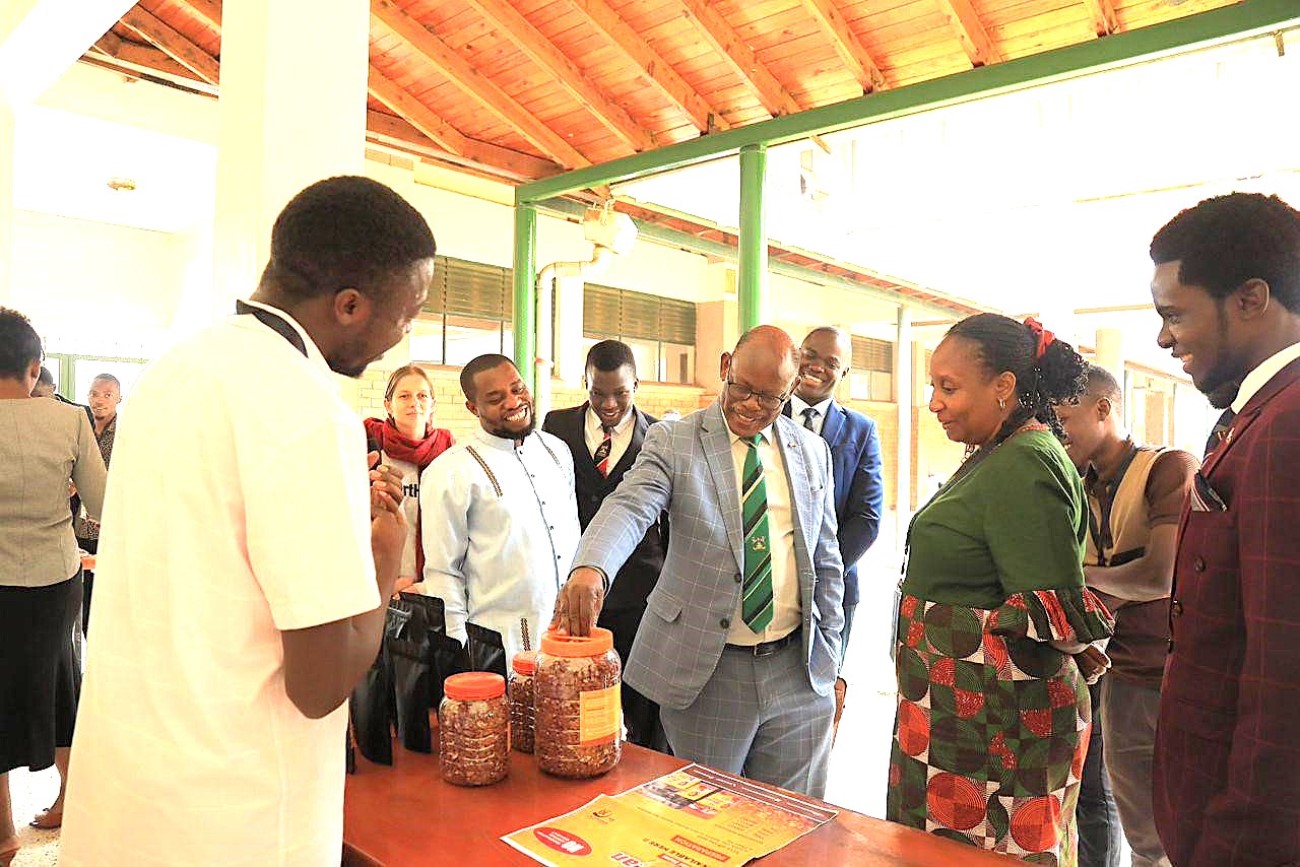
Most notably, the event was honored by the presence of the Vice Chancellor of Makerere University Prof. Barnabas Nawangwe. The Vice Chancellor commended the revitalization efforts, acknowledging the Centre’s immense potential to incubate hundreds of food-based start-ups and create employment opportunities for thousands of graduates. “The Centre is now well-positioned to become a flagship platform for innovation, employment creation, and agro-industrial development in Uganda and beyond. Makerere University remains committed to supporting such initiatives that align with national priorities and global development goals.”
The event featured the unveiling of the operational framework for the revitalized Centre, highlighting its commitment to innovation, entrepreneurship, and practical graduate training. Stakeholders in attendance expressed enthusiasm and pledged support for future collaboration, research, and product development initiatives aligned with national development priorities. The event also provided a platform to deepen partnerships with private sector actors and development organizations, reinforcing confidence in the Centre’s potential to serve as a national model for university-led incubation.
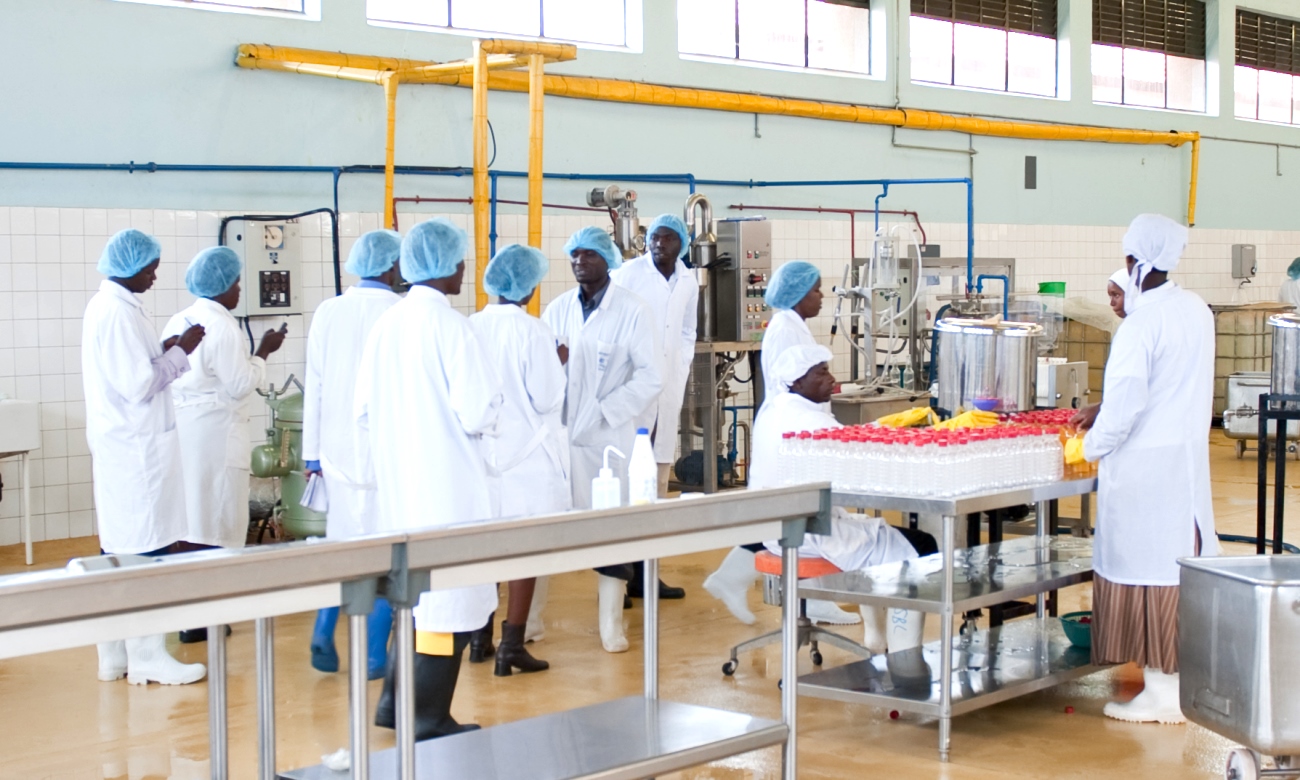
Agriculture & Environment
SophiA Project Upgrades Medical Infrastructure at Buvuma Health Centre IV, Trains Technicians for Maintenance Works
Published
1 week agoon
July 9, 2025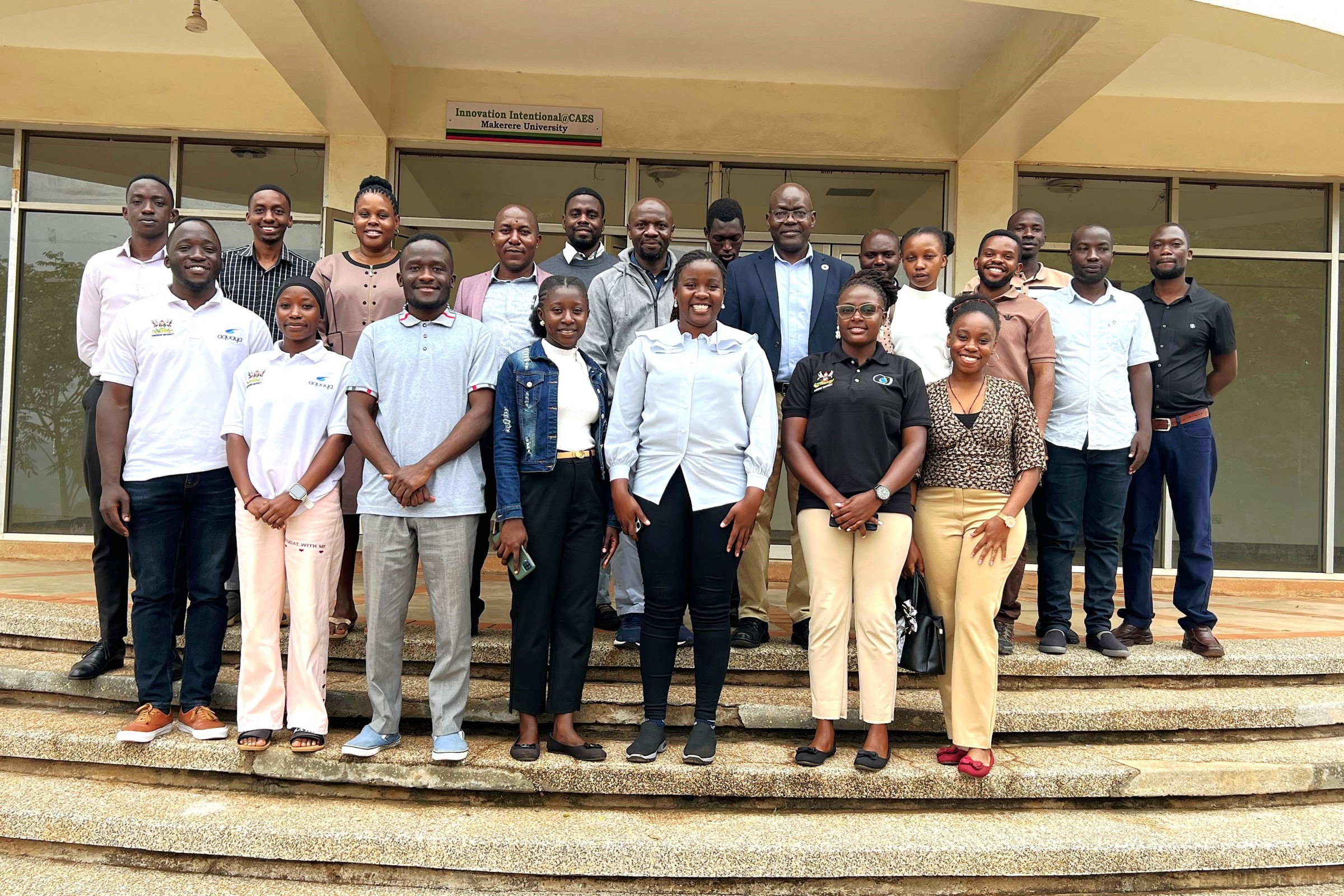
Overview of the Sustainable Off-Grid Solutions for Pharmacies and Hospitals in Africa (SophiA) Project
Despite ongoing urbanization across Africa, the majority of the population still resides in rural and remote areas, where infrastructure development remains limited. These regions face significant challenges such as lack of access to healthcare, education, clean water, and reliable electricity, contributing to higher rates of illness and poverty compared to urban centres. According to reports, Sub-Saharan Africa has approximately 120,000 public health facilities (22,000 hospitals and 98,000 health posts), of which around 26% lack any electricity access, and only 28% have reliable power supply.
Access to good healthcare is critical for sustainable development. However, many rural medical centres operate under harsh conditions – using polluted water, lacking cooling for medicines, and facing poor sanitation – largely due to unreliable electricity and water supply. Although half of the population in Sub-Saharan Africa lacks electricity, the region has abundant renewable energy potential that can be effectively harnessed through off-grid solar photovoltaic (PV) systems.
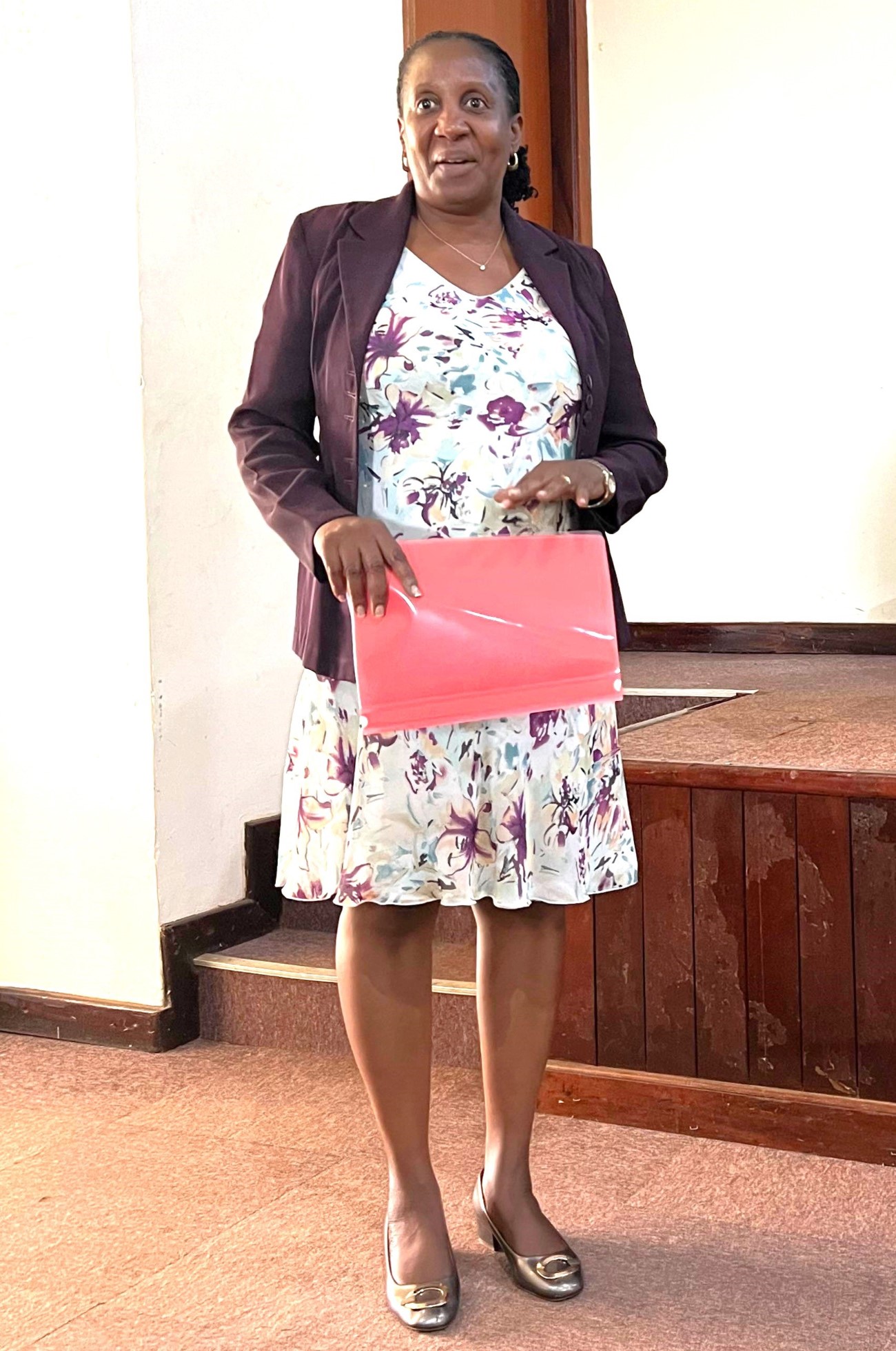
To address the above-mentioned challenges facing the African Continent, Makerere University in partnership with 13 organizations across Europe and Africa developed a project titled, “Sustainable Off-grid solutions for Pharmacies and Hospitals in Africa (SophiA)”. The five-year project that began on 1st October 2021 is funded by the European Union (Project: 101036836 – SophiA – H2020-LC-GD-2-3-2020). At Makerere University, the project is coordinated by Dr. Nicholas Kiggundu, Associate Professor in the Department of Agricultural and Biosystems Engineering, College of Agricultural and Environmental Sciences (CAES).
Piloted in Burkina Faso, Cameroon, Malawi, and Uganda, SophiA aims to provide sustainable off-grid energy solutions to rural and remote health facilities, fostering economic growth and ensuring equitable access to energy and healthcare. Using various technologies, such as photovoltaics, solar thermal, electrical and thermal storage, water treatment and natural refrigerants with low global warming potential, SophiA has developed and manufactured locally innovative, modular, affordable and efficient solar powered systems for providing:
- Safe and clean drinking water, free of bacteria and viruses, and deionised water for medical purposes;
- Hot water and steam production for thermal requirements of the hospitals;
- Cooling of medicines and food at +5°C;
- Low temperature storage of blood plasma and vaccines at -30°C;
- Ultra-low temperature storage of sensitive medication (e.g. some Covid-19 or Ebola vaccines) at -70°C.
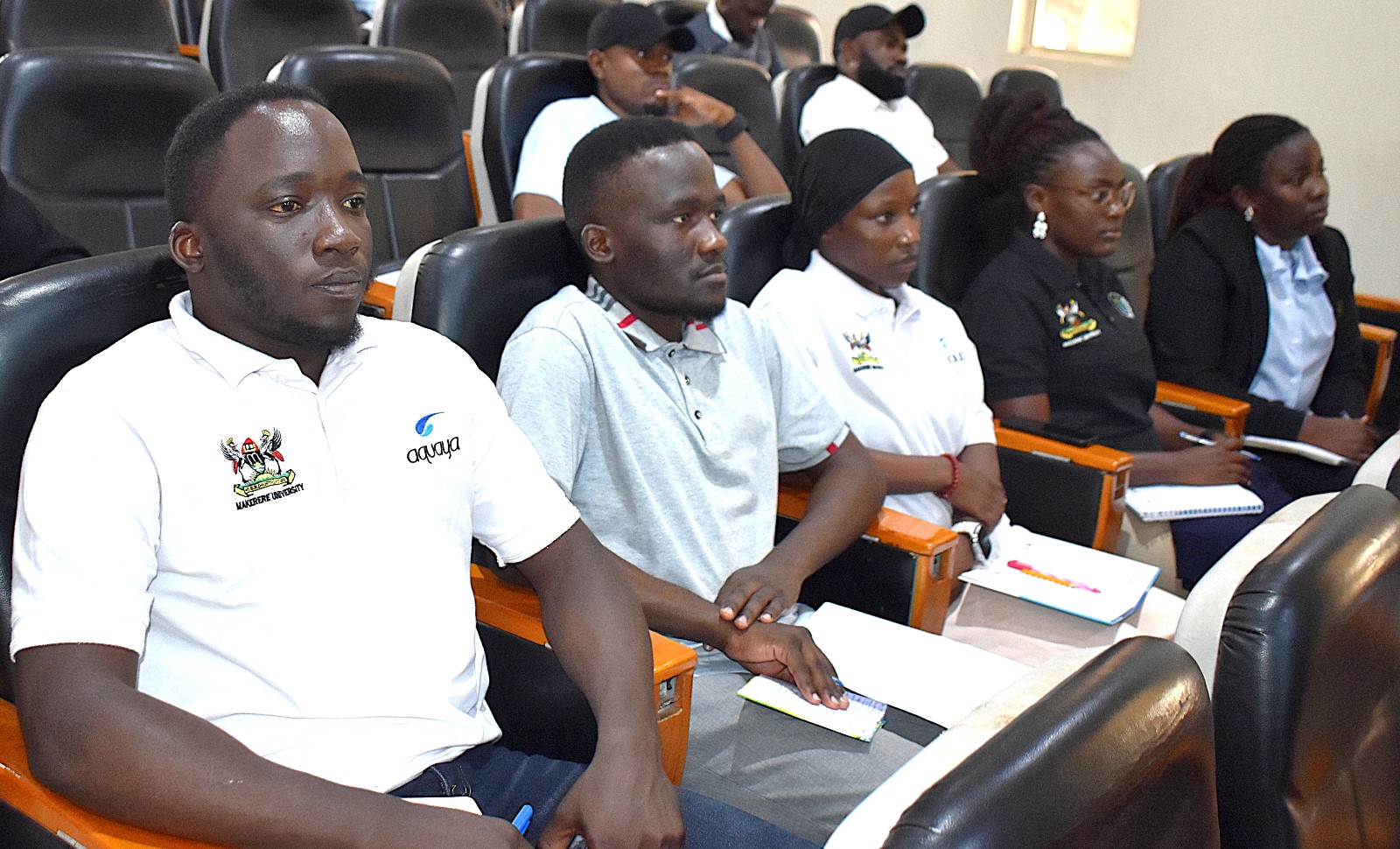
In addition, PV MedPort, a simple and 100% solar-powered solution has been developed and tested as a mobile health care station in small remote areas in 4 different geographical conditions in Africa. The SophiA system has been manufactured in Africa and will provide, for the first-time, innovative solutions based on climate-friendly natural refrigerants to cover cooling demand for three different temperature ranges (-70°C, -30°C and +5°C). The system has been tested and demonstrated at four rural hospitals in remote regions throughout the African continent covering the major geographical regions and different climatic conditions in Burkina Faso, Cameroon, Malawi and Uganda.
SophiA Project initiatives in Uganda
In Uganda, all Health Centre IV hospitals with surgical theatres have been connected to the national grid except Buvuma Health Centre IV, which serves over 120,000 people scattered across 52 islands. Recognizing this gap, the Ministry of Health selected Buvuma Health Centre IV for the SophiA project to demonstrate sustainable off-grid solutions.
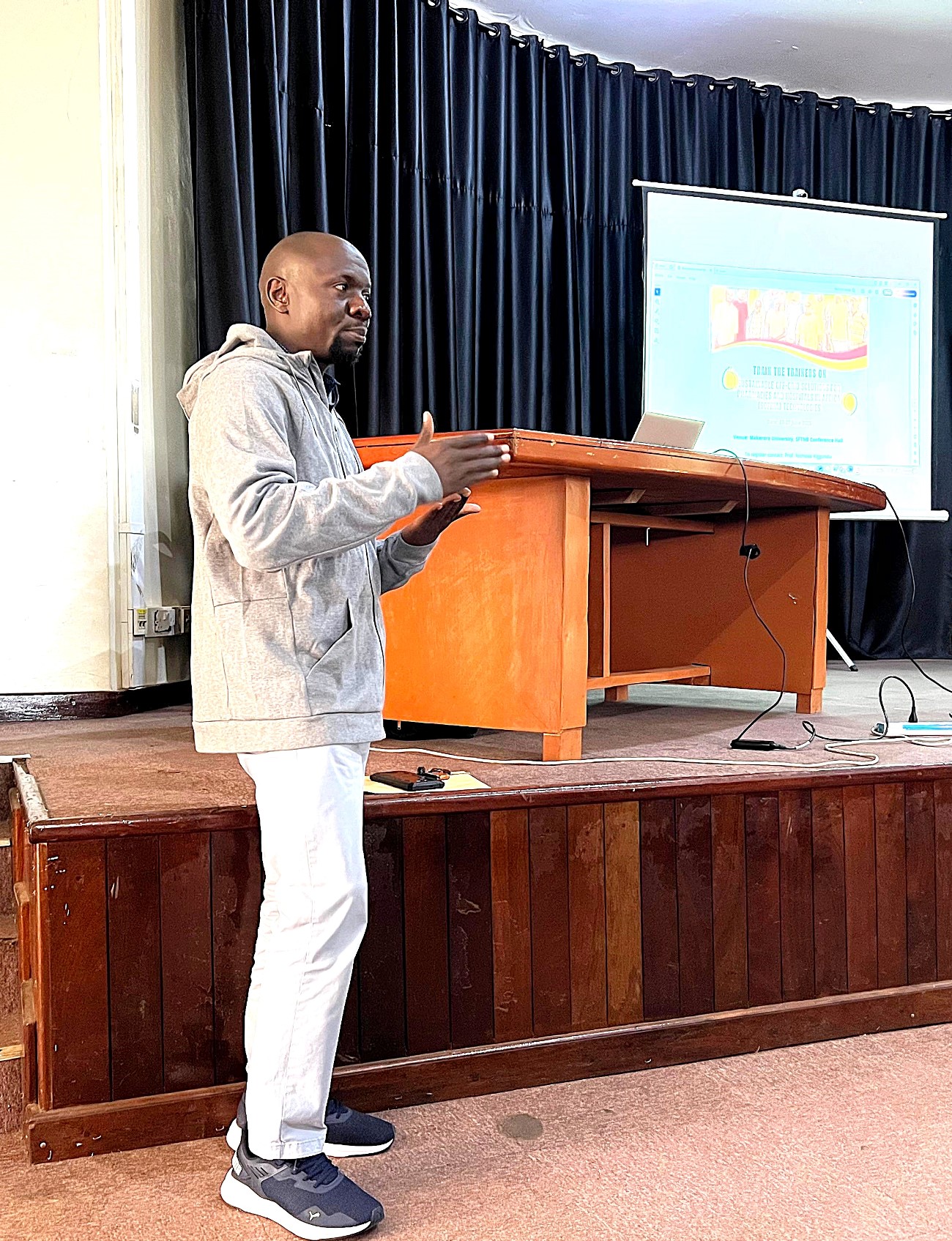
The SophiA System at Buvuma Health Centre IV provides the following services:
- Off-grid electricity supply
- Safe, clean drinking water for patients, staff, and the community
- Hot water and steam systems crucial for maternal care
- Solar-powered cooking and meal preparation
- Cooling systems for surgery and intensive care units
- Refrigeration for medicines at +5°C, blood plasma storage at -30°C, and ultra-low temperature storage (-70°C) for sensitive vaccines such as those for COVID-19 and Ebola
Training of Trainers Workshop
As the SophiA project approaches completion in September 2025, it is vital to establish a skilled pool of technicians capable of handling maintenance and minor repairs of the system components, including solar panels, water treatment units, generators, batteries, and cooking kits.
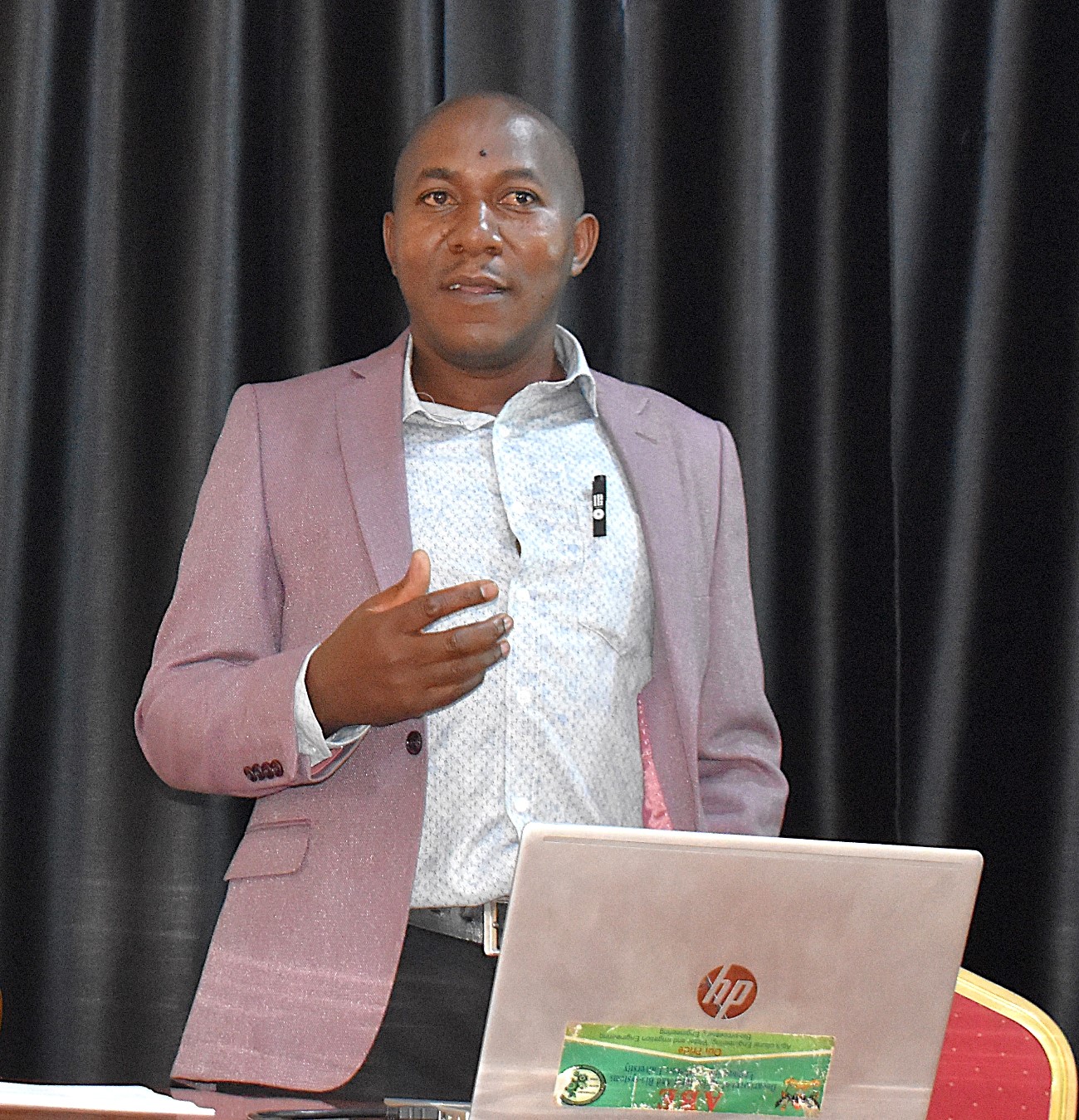
From June 23 to 27, 2025, Makerere University hosted a comprehensive Training of Trainers workshop. The training programme encompassed a diverse range of topics delivered by subject matter experts from institutions, including Makerere University (Department of Agricultural and Biosystems Engineering – CAES, and the College of Engineering, Design, Art and Technology – CEDAT), Hochschule University of Applied Sciences, and Busitema University. Participants were carefully selected from diverse professional backgrounds, including recent engineering graduates from CAES and CEDAT, Makerere University, University technical staff, personnel from Kyambogo University, officials from Buvuma District Works and Health Departments, and electricians from Kampala City. The training sessions were conducted at Makerere University and Buvuma Health Centre IV Hospital.
Training Modules Included:
- Sustainable energy systems and their practical applications
- Energy generation and storage technologies
- Solar water heating: design, operation, maintenance, and performance optimization of solar water heaters, crop dryers, and concentrating solar heaters
- Solar PV technologies in Uganda: cell technology, system design, operations, maintenance, and hands-on practicals for standalone and grid-connected systems
- Public health implications of water quality
- Water treatment and quality management, including protocols, parameters, and case study on the MCDI treatment system
- Water quality testing methodologies
- Introduction to sustainable refrigeration and cooling technologies
- Environmental impact and safety considerations for refrigerants
- Refrigeration cycles and component overview
- Life cycle assessment of SophiA technologies
- Thermal energy storage within the SophiA system
- Steam as a productive energy source
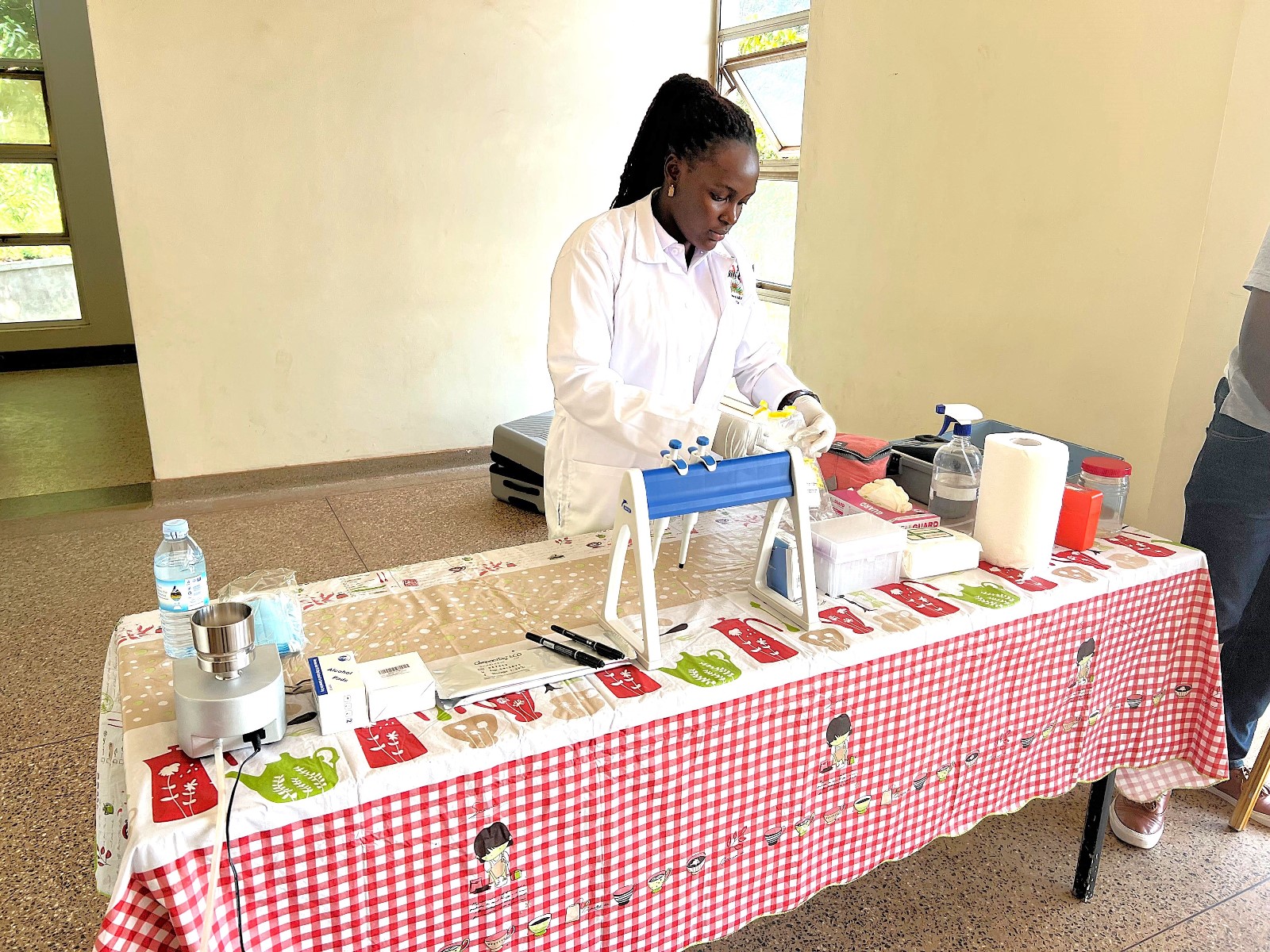
The Training Sessions
Day One: Introduction to foundational concepts in solar energy technologies
The first day of the SophiA Train the Trainers Workshop focused on building foundational knowledge in sustainable and solar energy systems. Led by Dr. Peter Tumutegyereize and Dr. Francis Mujjuni, participants explored a range of technologies and applications critical to clean energy deployment.
Key topics included:
Sustainable Energy Systems: Introduction to renewable energy systems including bioenergy, hydro, wind, geothermal, hydrogen fuel cells, and battery storage.
Solar Radiation & Geometry: Understanding solar constants, irradiance, and the impact of atmospheric conditions on solar performance.
Solar Thermal Technologies: Detailed look at solar water heating systems (FPCs and ETCs), maintenance, sizing, and solar dryers for agricultural and industrial use.
Photovoltaic (PV) Systems: Working principles, types of PV cells, performance factors, and diagnostics. Practical testing techniques and metrics like Voc, Isc, MPP, and PR were discussed.
Simulation & Application: Olivia Nakiwanuka demonstrated a PVsyst-based simulation of a 2.55 kWp standalone system for a conference hall, showing a high solar fraction (97.88%) and low LCOE (USD 0.03/kWh).
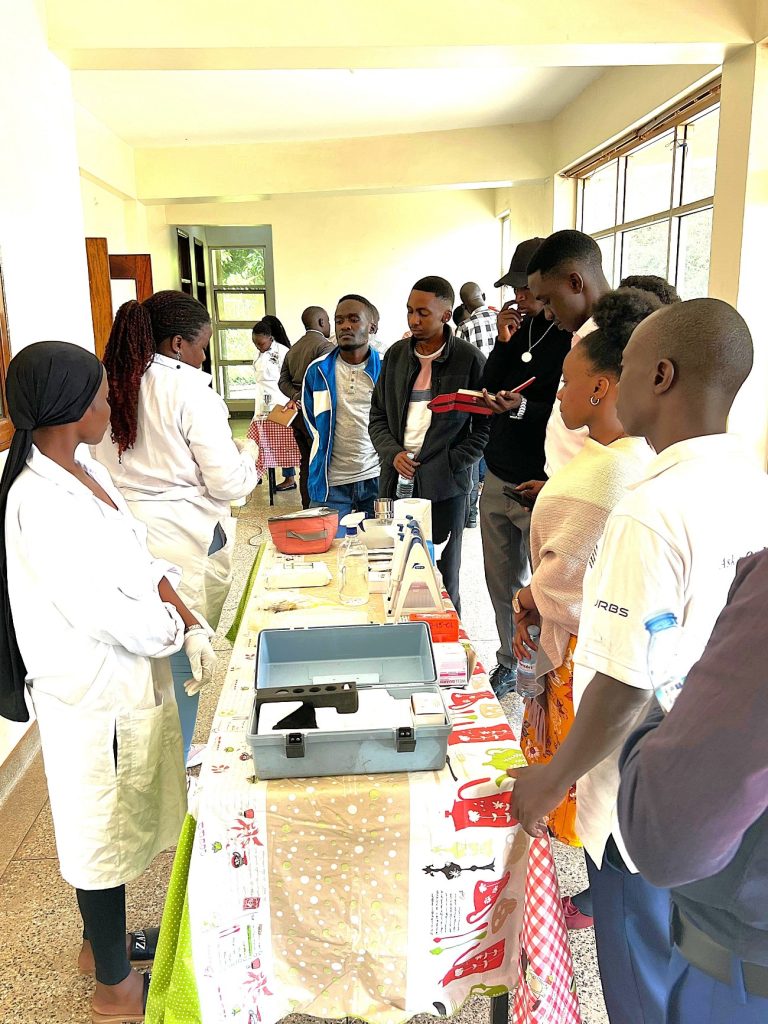
The sessions emphasized practical skills, performance analysis, and real-world application, equipping participants to train others and support solar adoption, especially in rural and off-grid settings.
Day Two: Water Treatment Technologies
The second day focused on water treatment technologies relevant to low-resource healthcare settings. Facilitated by Sneha De and Mr. Duc Dinh Ngoc from Hochschule Karlsruhe University, sessions covered technical, environmental, and operational challenges, with contributions from Dr. Joshua Wanyama on water quality management and Dr. Prossie Nakawuka on practical water testing.
Key challenges addressed included unreliable water supply and contamination in healthcare facilities, emphasizing the need for decentralized water treatment, especially in rural areas.
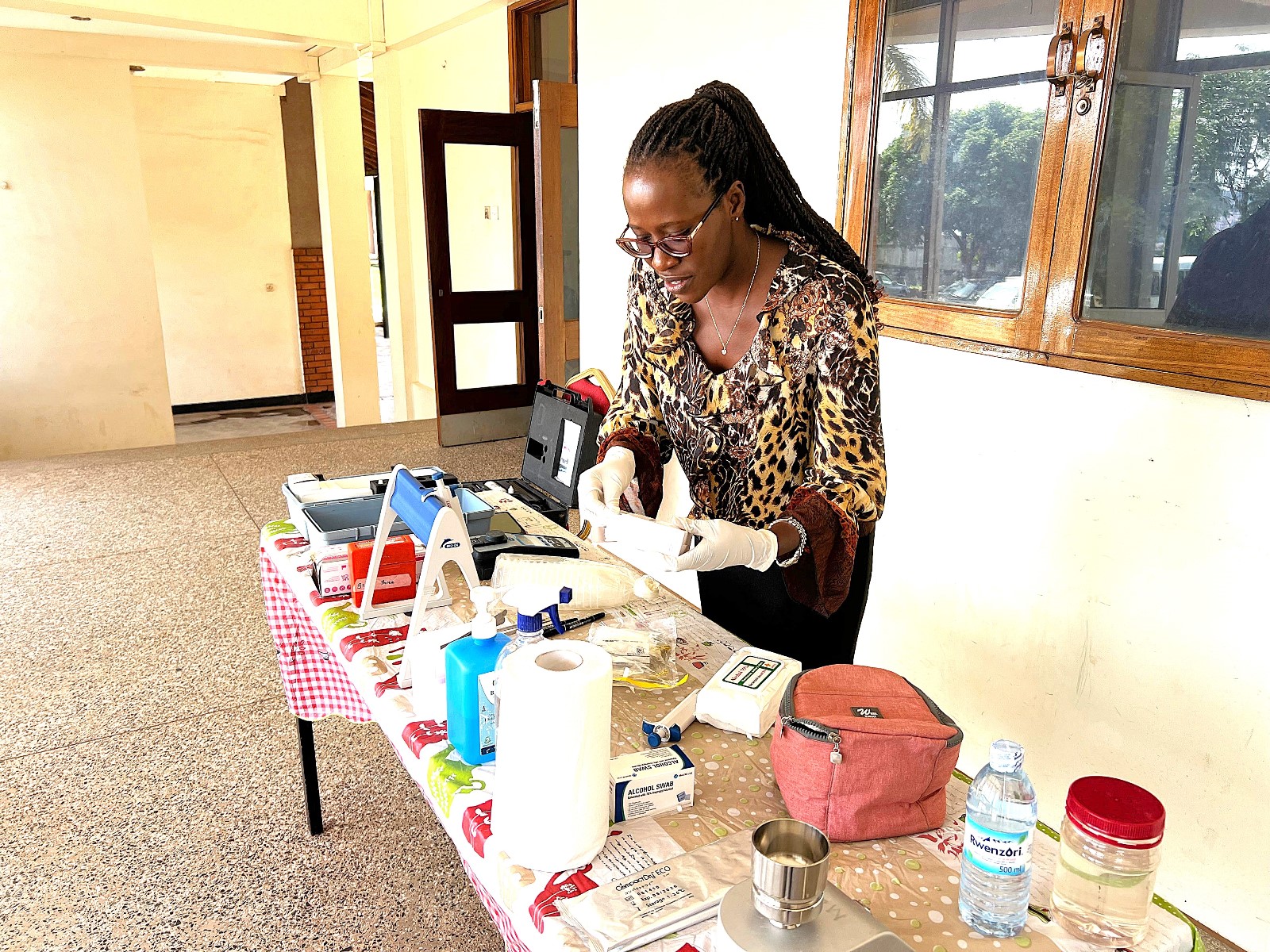
Sneha De reviewed biological and physical/chemical water treatment methods, highlighting technologies such as activated sludge, filtration, membrane bioreactors, and advanced disinfection techniques. The SophiA modular water treatment system, integrating ultrafiltration and membrane capacitive deionisation (MCDI), was introduced as a scalable solution for producing safe drinking and deionised water for medical use.
Mr. Duc Dinh Ngoc trained participants on the MCDI technology, an energy-efficient method for salt and fluoride removal suitable for low-salinity water.
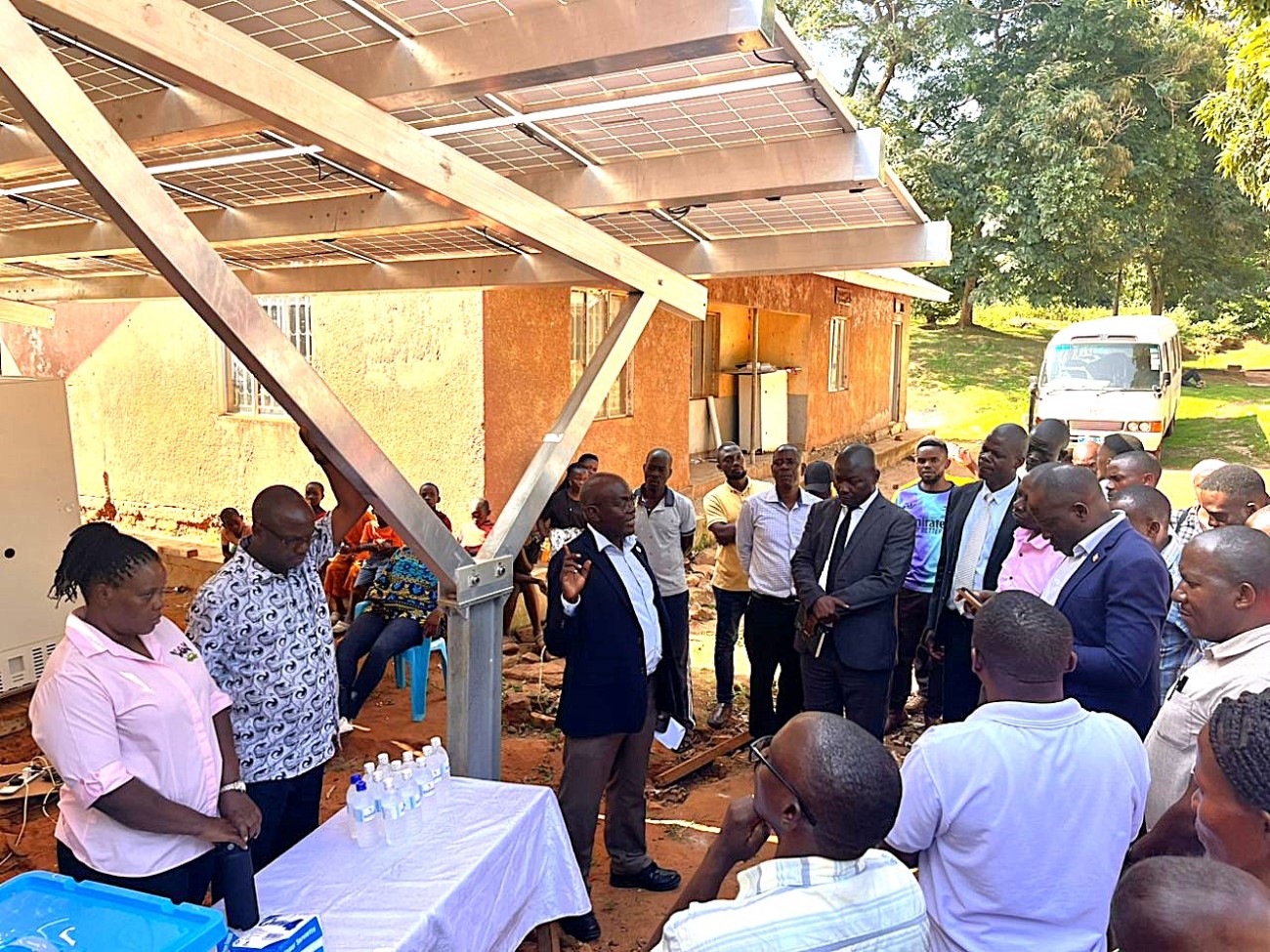
Dr. Joshua Wanyama discussed the water quality management protocols, outlining key physical, chemical, and biological water parameters and monitoring strategies, including modern IoT-based tools, to ensure water safety and public health.
The day concluded with a hands-on lab session by Dr. Prossie Nakawuka, where participants practiced water quality testing using turbidimeters, incubators, and filtration techniques.
Overall, Day Two combined theoretical insights, technology demonstrations, and practical skills, preparing participants to implement sustainable water treatment and quality management systems in healthcare environments.
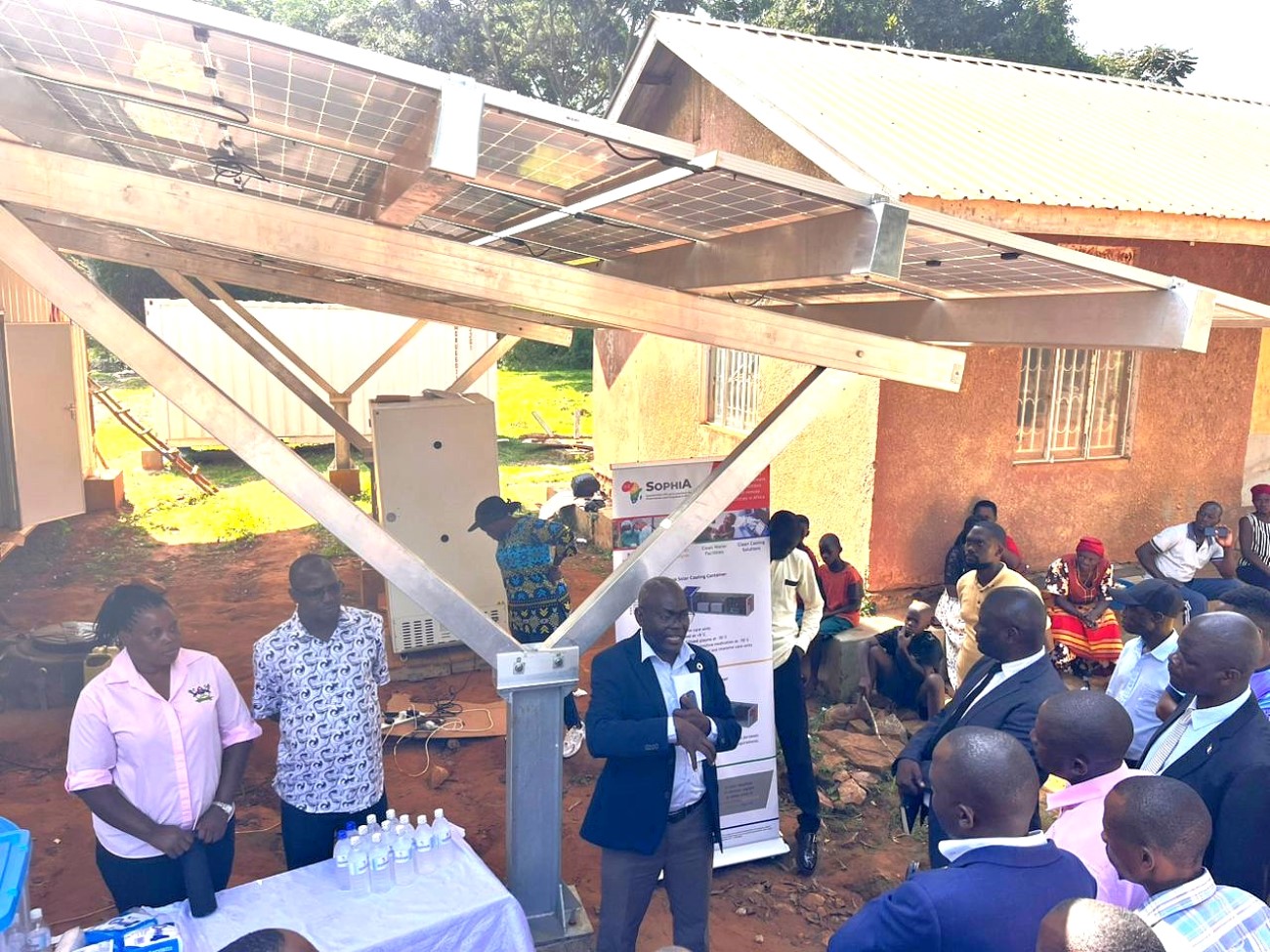
Day Three: Refrigeration and Cold Storage
The third day of the SophiA workshop focused on sustainable refrigeration and cold storage technologies tailored for healthcare in Sub-Saharan Africa. Experts discussed energy-efficient, climate-friendly cooling solutions vital for vaccine storage, medicines, and diagnostics, especially in off-grid and rural settings.
Key highlights included the introduction of solar-powered and biomass-based refrigeration systems, thermal energy storage methods, and the use of natural refrigerants like propane, ammonia, and CO₂ as environmentally safer alternatives. Presentations emphasized the critical role of refrigeration in healthcare and the urgent need to replace harmful chemicals with sustainable technologies.
Sessions covered real-world applications such as the SophiA cooling containers in Burkina Faso, safety protocols for flammable refrigerants, and the environmental and economic benefits of solar refrigeration systems assessed through life cycle analysis.
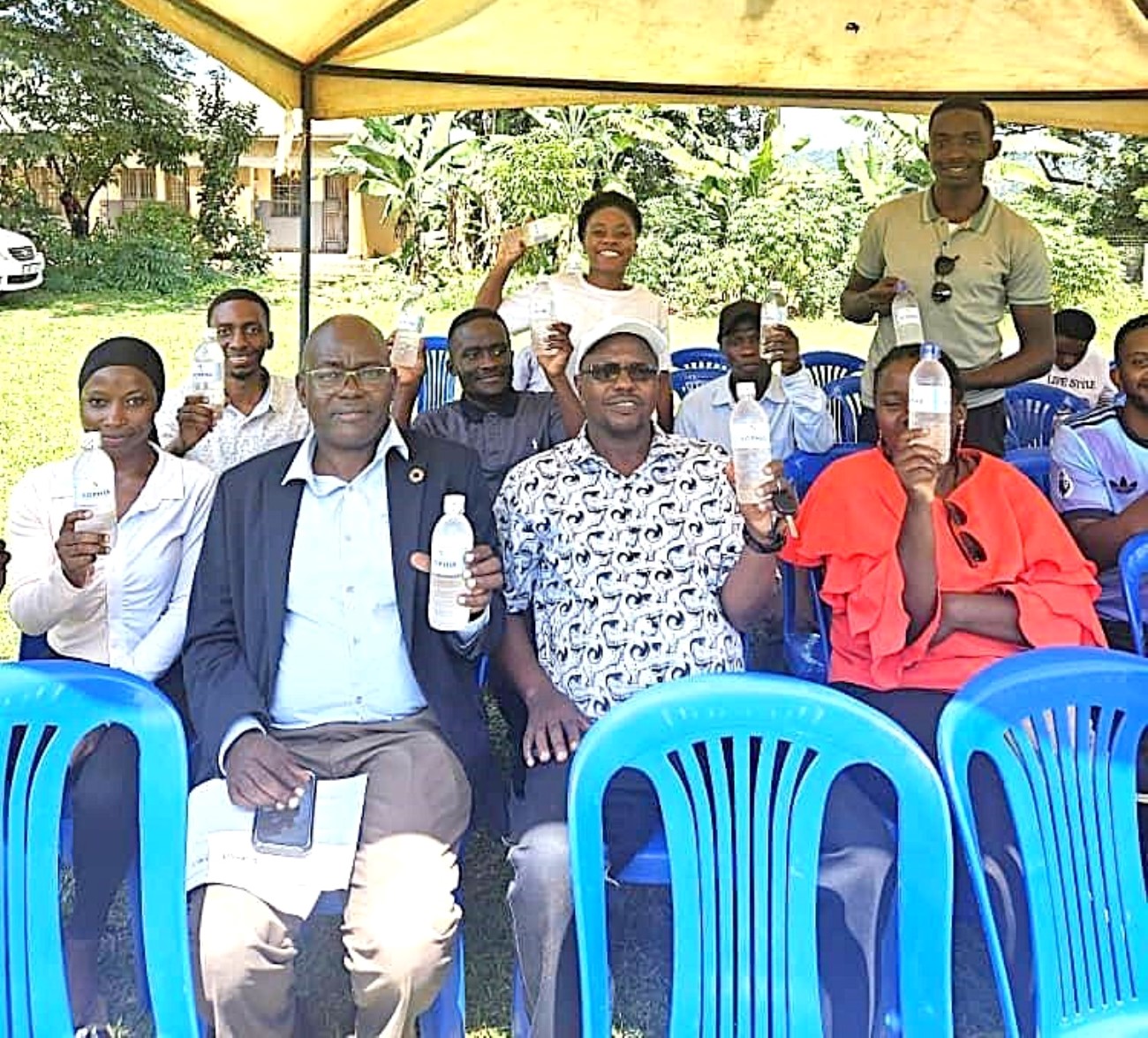
The day ended with an interactive quiz and discussion, reinforcing learning and encouraging participants to apply sustainable cooling practices in their communities.
Day Four: World Refrigeration Day & Field Visit to Buvuma Island
The fourth day of the SophiA Train the Trainers workshop was dedicated to the celebration of the World Refrigeration Day and a field excursion to Buvuma Island, providing participants with a unique opportunity to witness the SophiA system in action. The day was coordinated by Dr. Sarah Bimbona and Dr. Nicholas Kiggundu, who led the delegation to Buvuma Health Centre IV, the pilot site for the SophiA installation in Uganda.
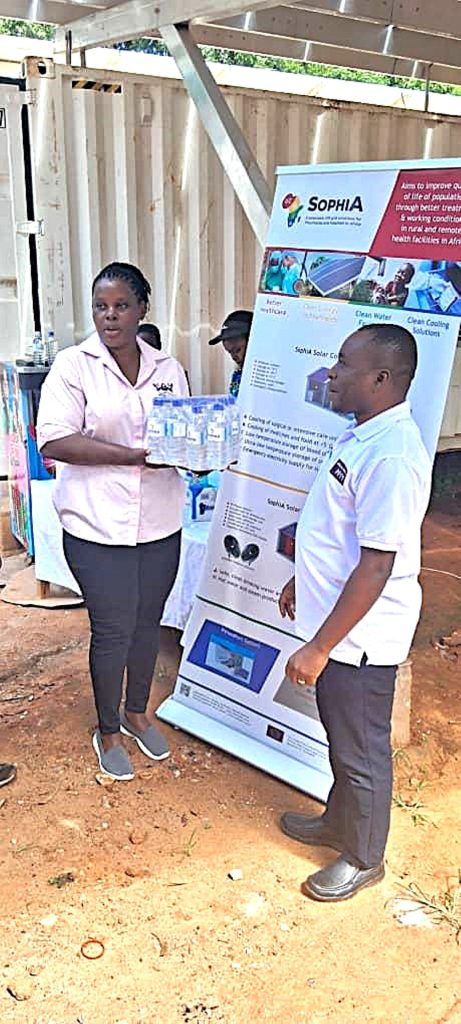
The visit served as both a practical extension of the previous day’s technical sessions and a community engagement event. Participants were able to observe the installed SophiA system, which integrates solar-powered refrigeration, water treatment and steam generation technologies designed for off-grid healthcare settings. During the visit, Dr. Kiggundu provided a detailed briefing to local stakeholders, including representatives from the Buvuma District Local Government, delegates from the Buganda Kingdom, and members of the local community. He explained how the SophiA system will enhance healthcare delivery on the island through reliable cold storage for vaccines and medicines, access to clean drinking water, and steam generated for cooking and use in the maternity wards.
As part of the long-term sustainability plan for the SophiA system, the launch of SophiA Water was announced, an entrepreneurial initiative designed to generate revenue locally for the operation and maintenance of the system.
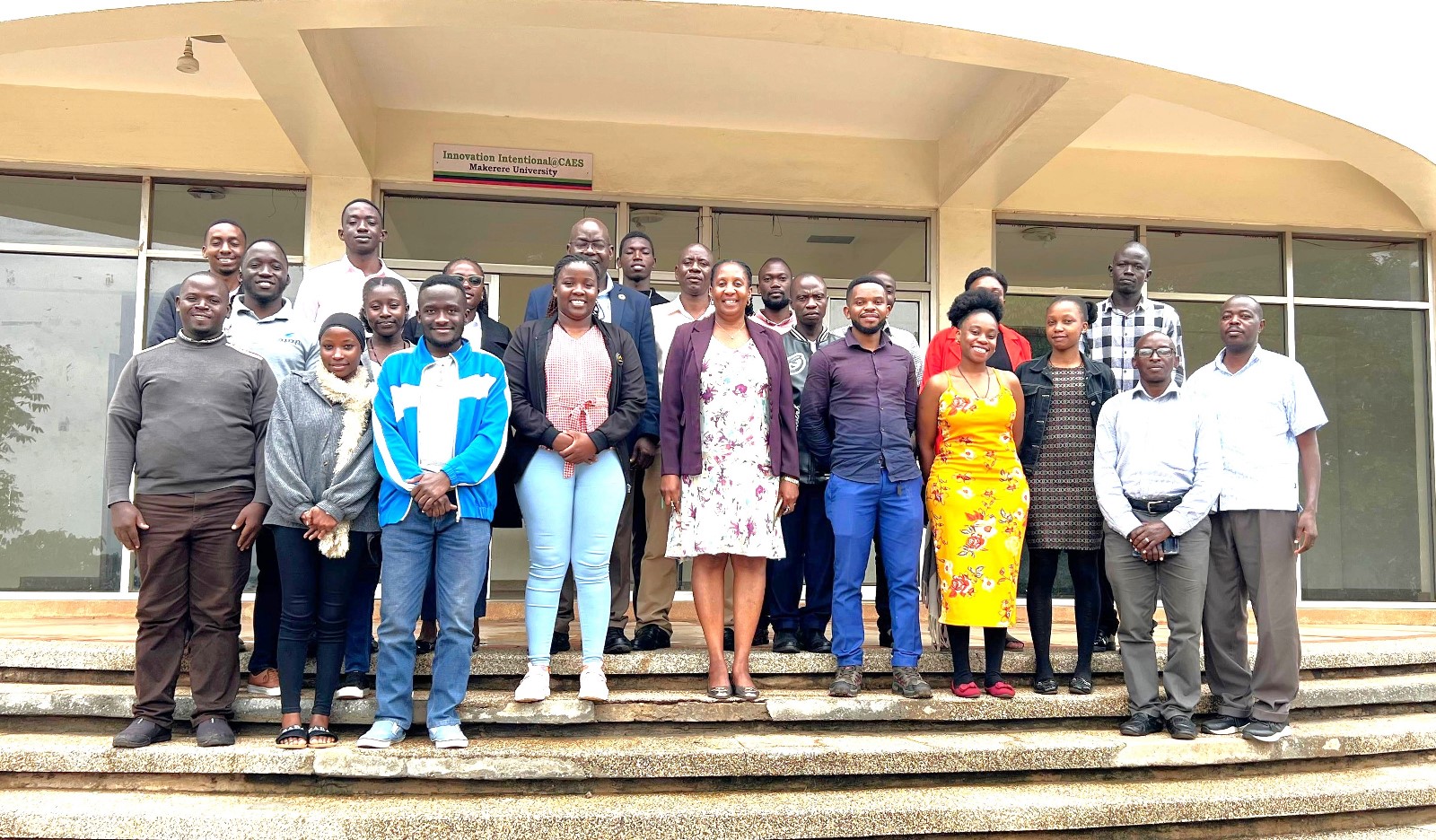
The field trip ended with a certificate awarding ceremony in appreciation of the participants’ dedication and active engagement throughout the training programme.
Agriculture & Environment
APRC Trains Graduate Students & Stakeholders in the Use of the African Agriculture Adaptation Atlas
Published
2 weeks agoon
July 3, 2025
The Agricultural Policy Research Centre (APRC), housed within the College of Agricultural and Environmental Sciences (CAES) at Makerere University, continues to play a pivotal role in shaping Uganda’s agricultural future through evidence-based policymaking. With a mission to ensure that agricultural policies are grounded in empirical research and data, APRC is actively investing in capacity-building initiatives that empower researchers, policymakers, and development actors.
In a significant stride toward building climate resilience in African agriculture, APRC recently organized a two-day intensive training workshop focused on the African Agriculture Adaptation Atlas (AAAA) – a state-of-the-art, web-based decision-support platform that facilitates the integration of climate data into agricultural planning and policy.

The workshop, held on Wednesday 25th and Thursday 26th June 2025 at the School of Agricultural Sciences, Makerere University, targeted two key groups: graduate students on the first day, and university faculty, government officials, and development practitioners on the second. This structure ensured tailored learning experiences for both emerging and seasoned professionals, helping to bridge the gap between academic research and real-world policy implementation.
The African Agriculture Adaptation Atlas (AAAA) is designed to provide dynamic, data-rich visualizations that support informed decision-making in agriculture and food systems across the continent. Through interactive maps and analytical tools, users can explore projected climate impacts, evaluate risks, and identify localized, climate-smart adaptation strategies.

Throughout the sessions, participants received hands-on training in a broad range of AAAA functionalities, including:
- Leveraging the Atlas for research and policy communication: Enhancing the ability of scientists and policy actors to translate complex climate data into actionable insights;
- Assessing projected climate impacts and associated agricultural risks: Essential for forward-looking planning and risk mitigation;
- Identifying climate-smart investment options, with a particular focus on the livestock sector, which is especially vulnerable to climate shocks;
- Analysing gendered vulnerabilities: Examining how climate change disproportionately affects women in agricultural communities;
- Understanding the implications of heat stress on agricultural productivity: Supporting targeted interventions to protect producers and their livelihoods;
- Estimating the economic returns of adaptation strategies: Aiding in prioritizing investments and allocating limited resources effectively.

Prof. Bernard Bashaasha, the APRC Coordinator, emphasized the importance of the training in advancing Africa’s adaptation agenda. “As climate change continues to threaten food security and disrupt livelihoods across the continent, tools like the AAAA, and the skills to use them effectively are essential. They empower decision-makers to craft policies that are adaptive, inclusive, and rooted in science,” he noted.
The workshop was coordinated by Dr. Florence Rwiza, Lecturer in the Department of Agribusiness and Natural Resource Economics at CAES.
More photos from the Training






Trending
-

 General2 weeks ago
General2 weeks agoRe-advert: Admission to Undergraduate Programmes 2025/2026
-

 General1 week ago
General1 week agoRe-Advert for Applications for Diploma and Certificate Training
-

 General5 days ago
General5 days agoMakerere University Fees Waiver for 40 First Year Female Students 2025/2026
-

 General2 weeks ago
General2 weeks agoPress Statement on Ranking
-

 Health1 week ago
Health1 week agoCall for Applications: Responsible Conduct of Research (RCR) Training Course
